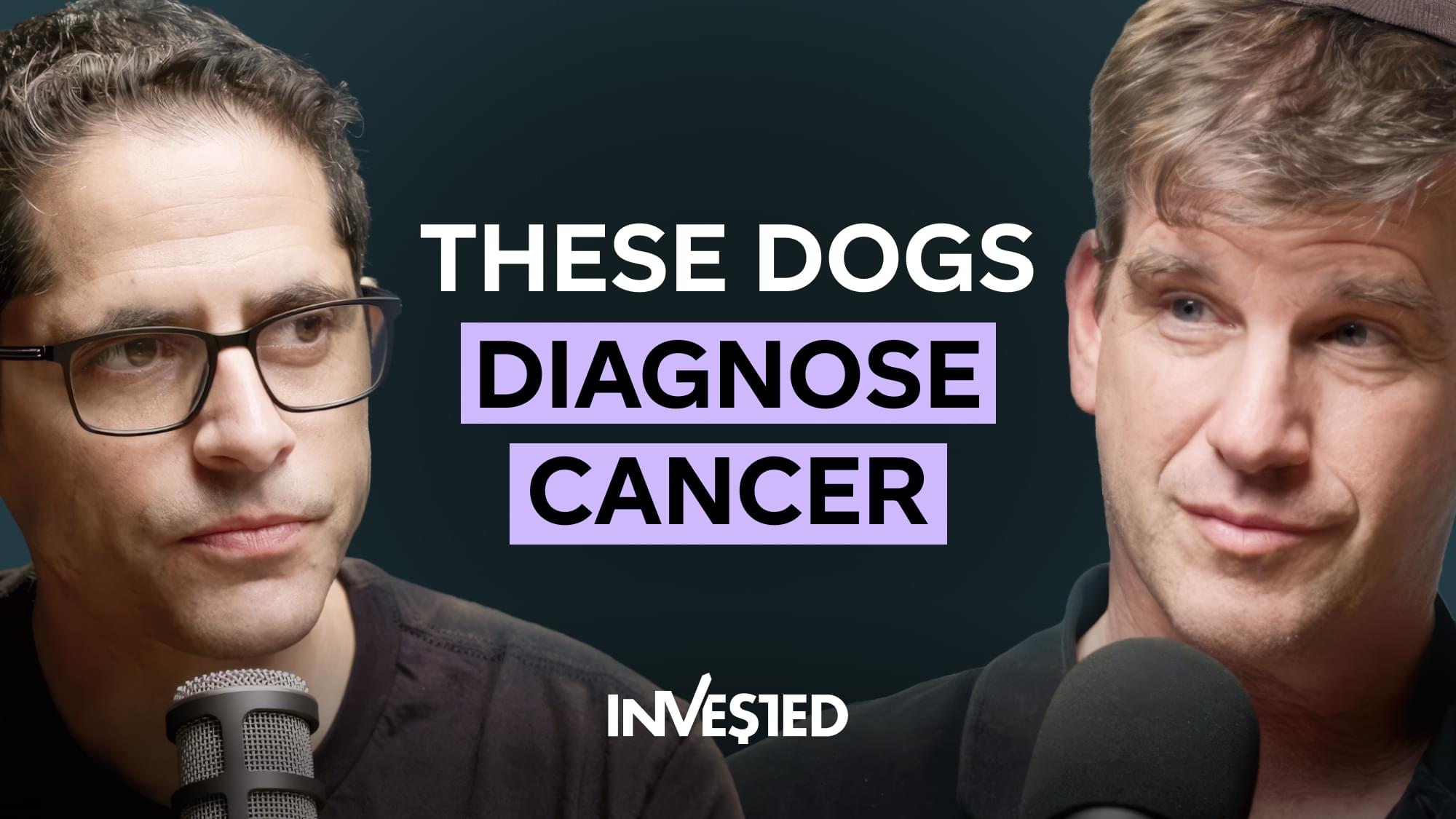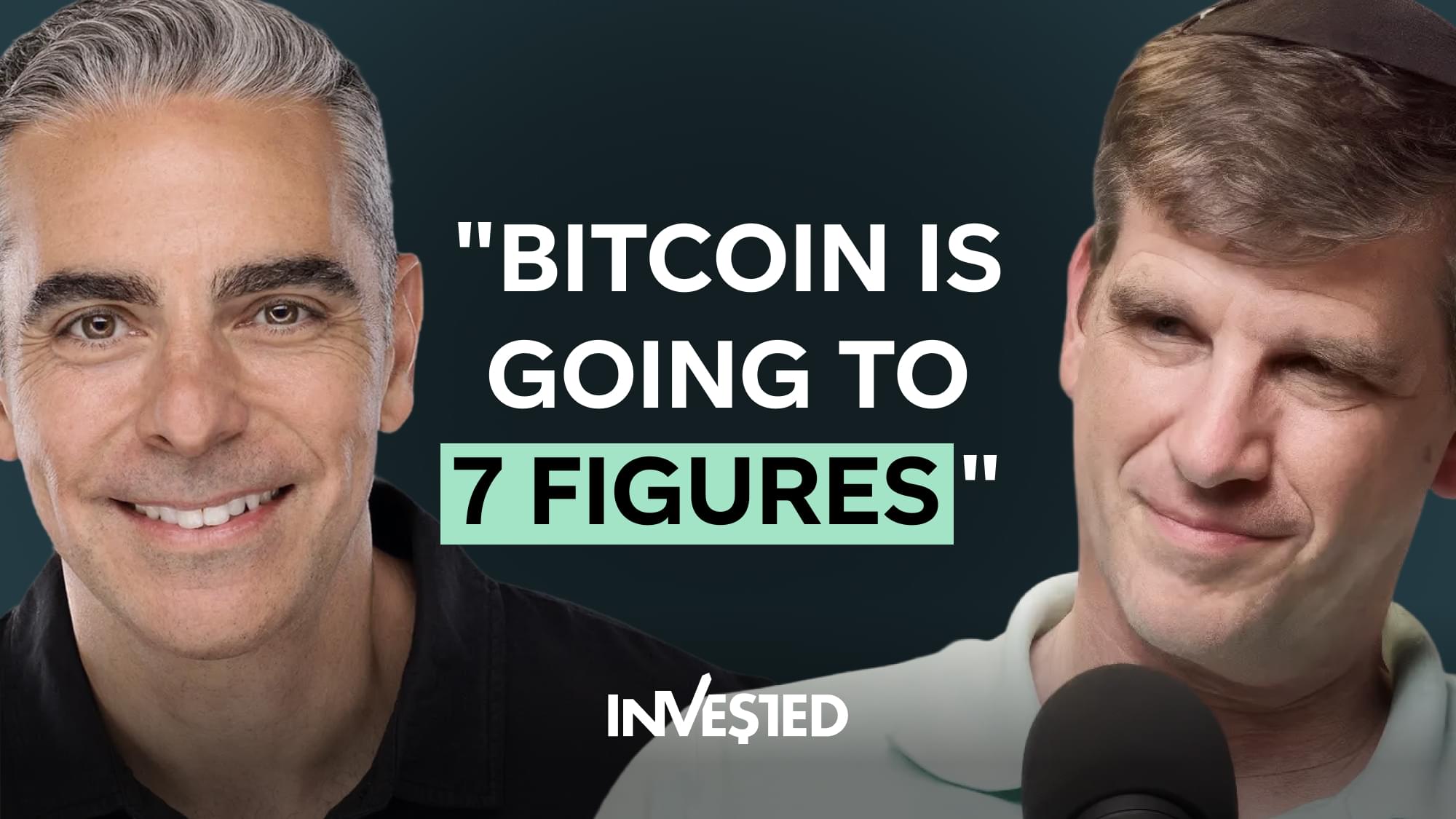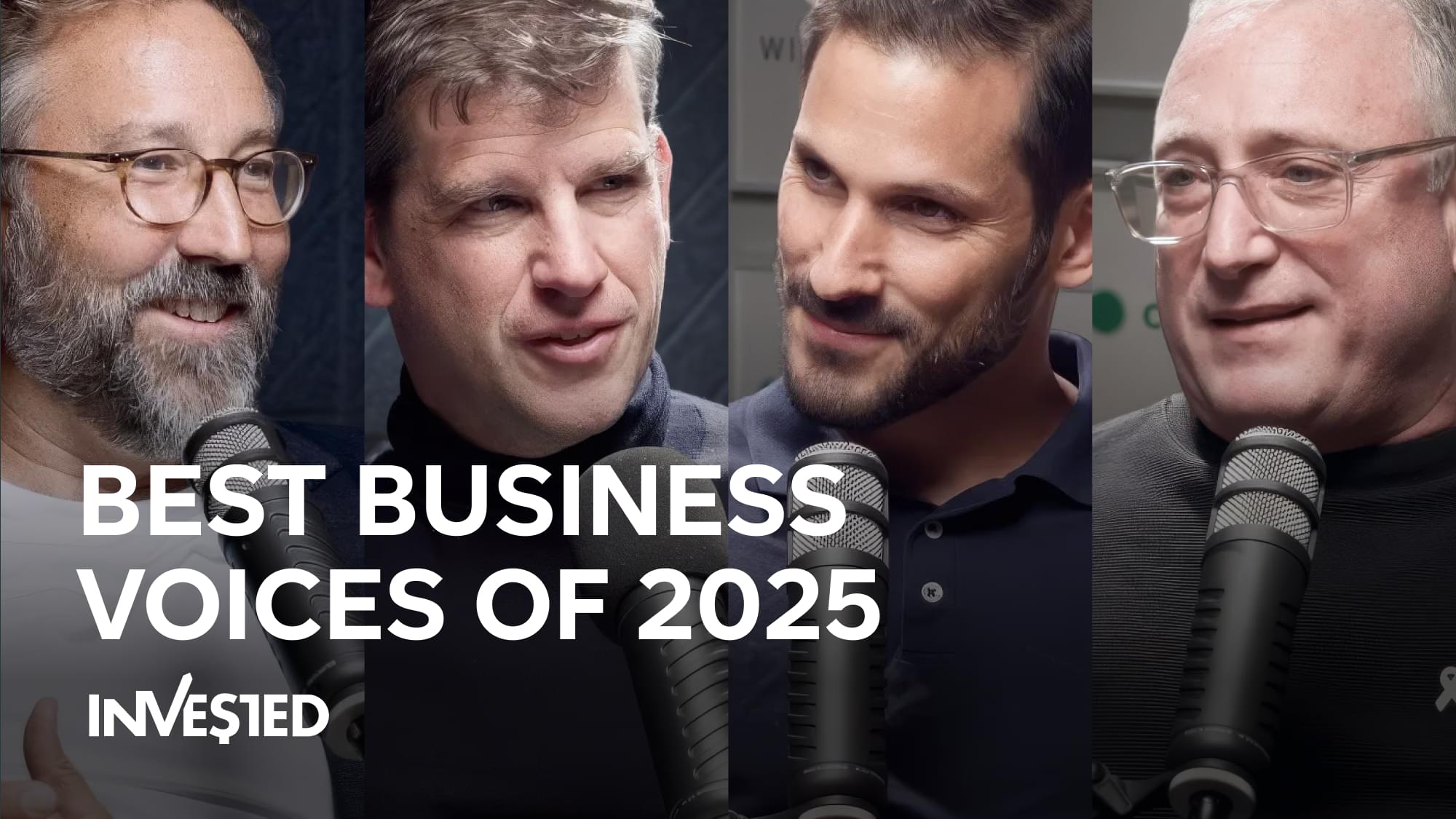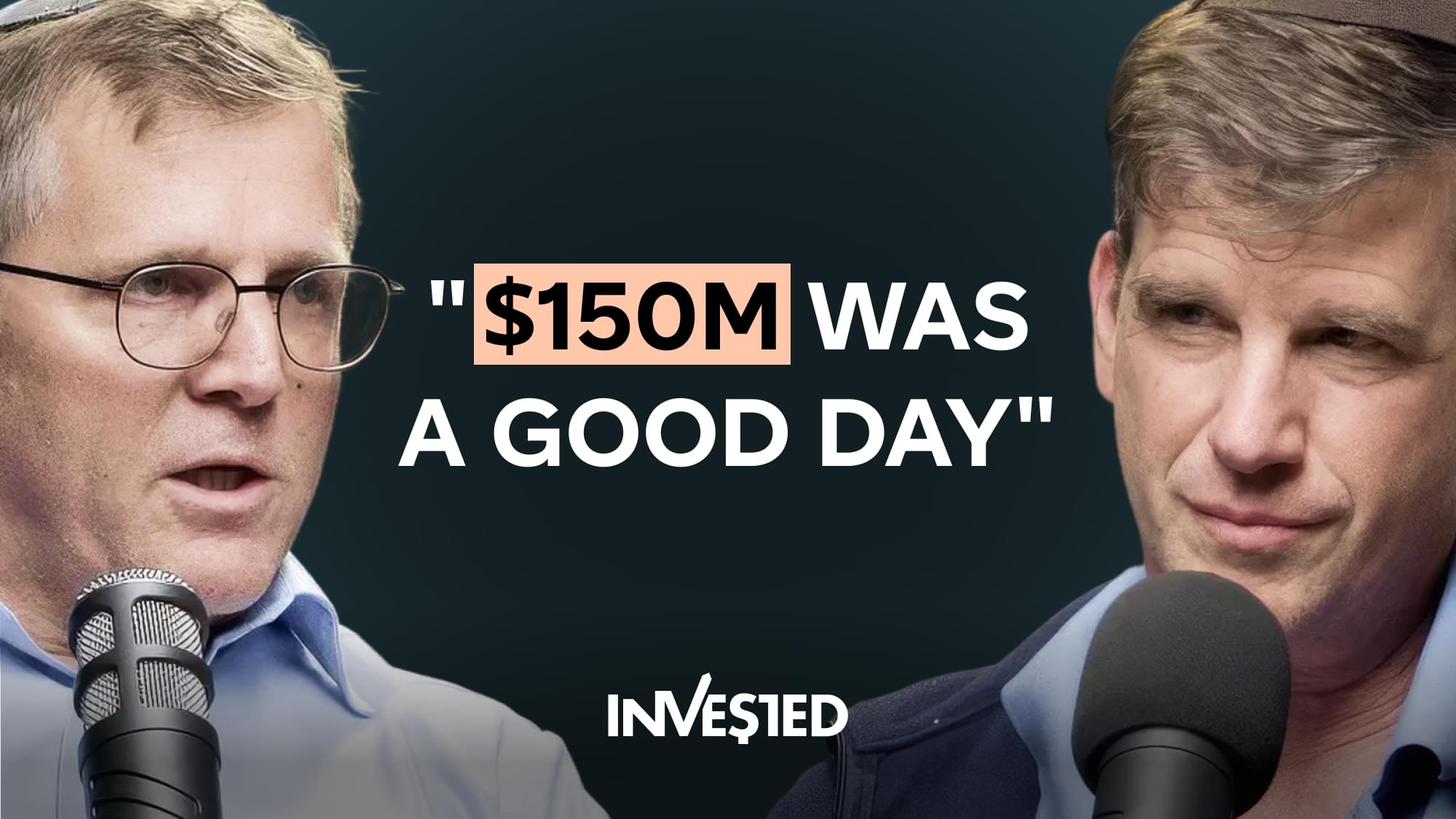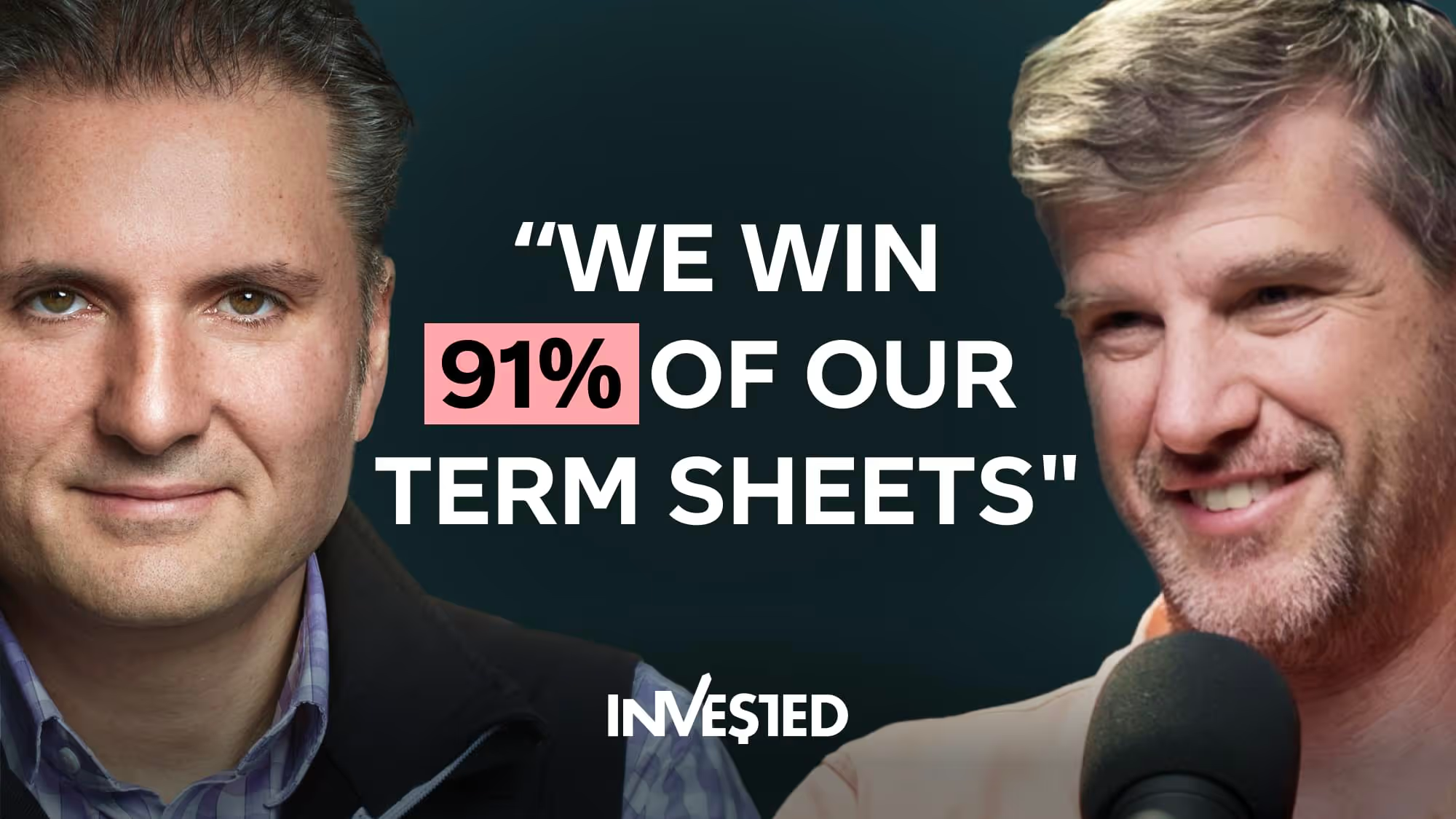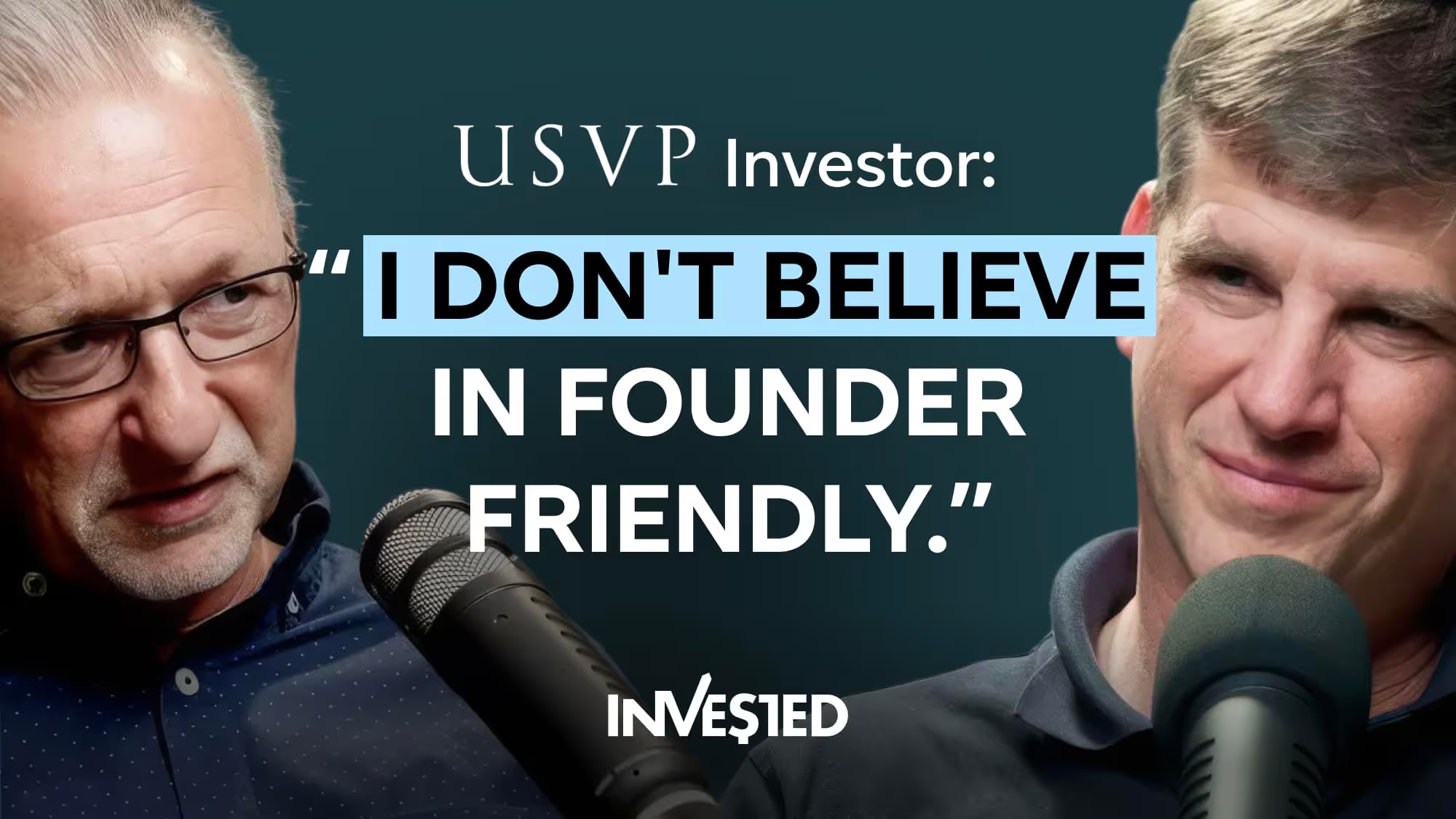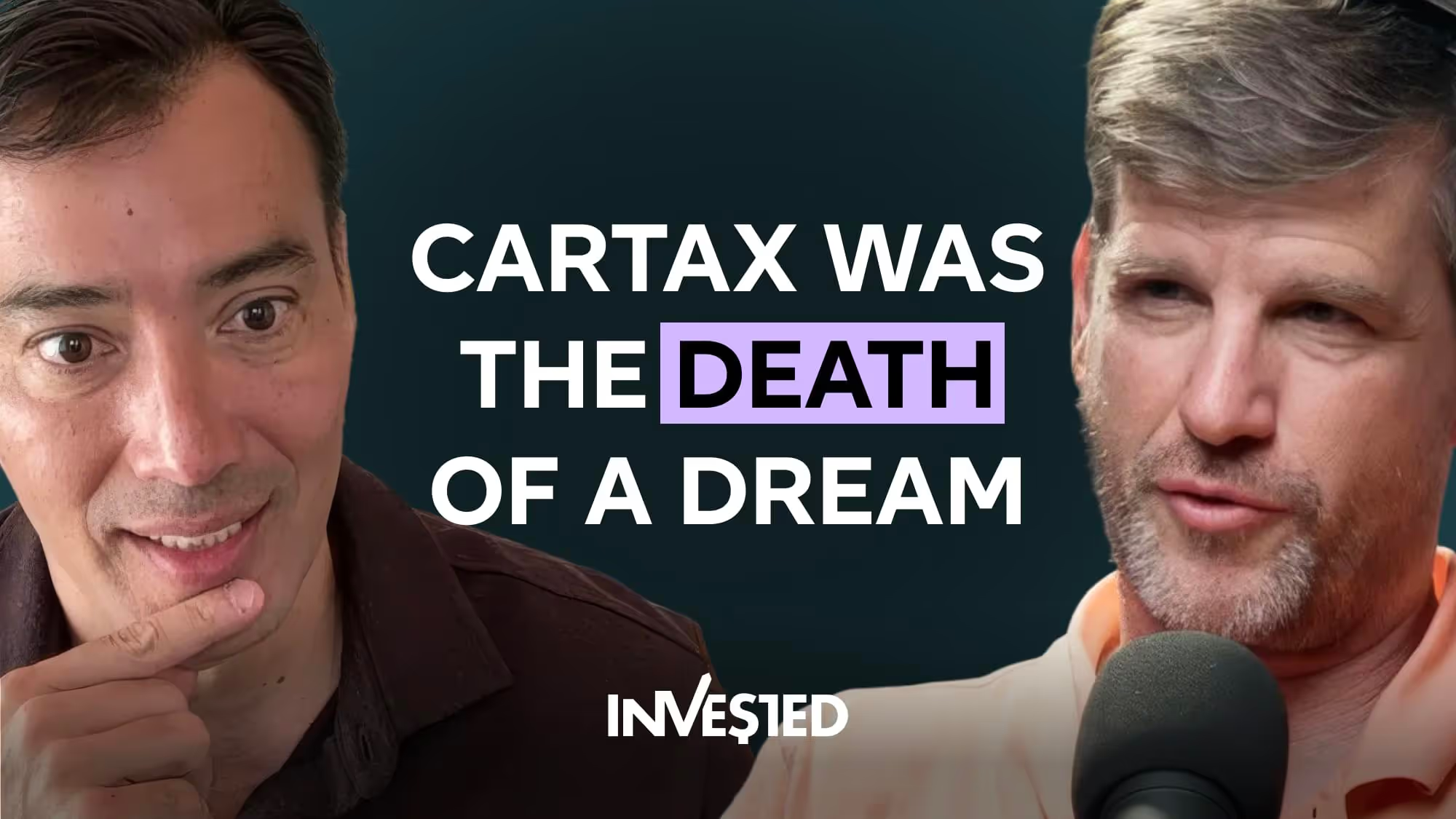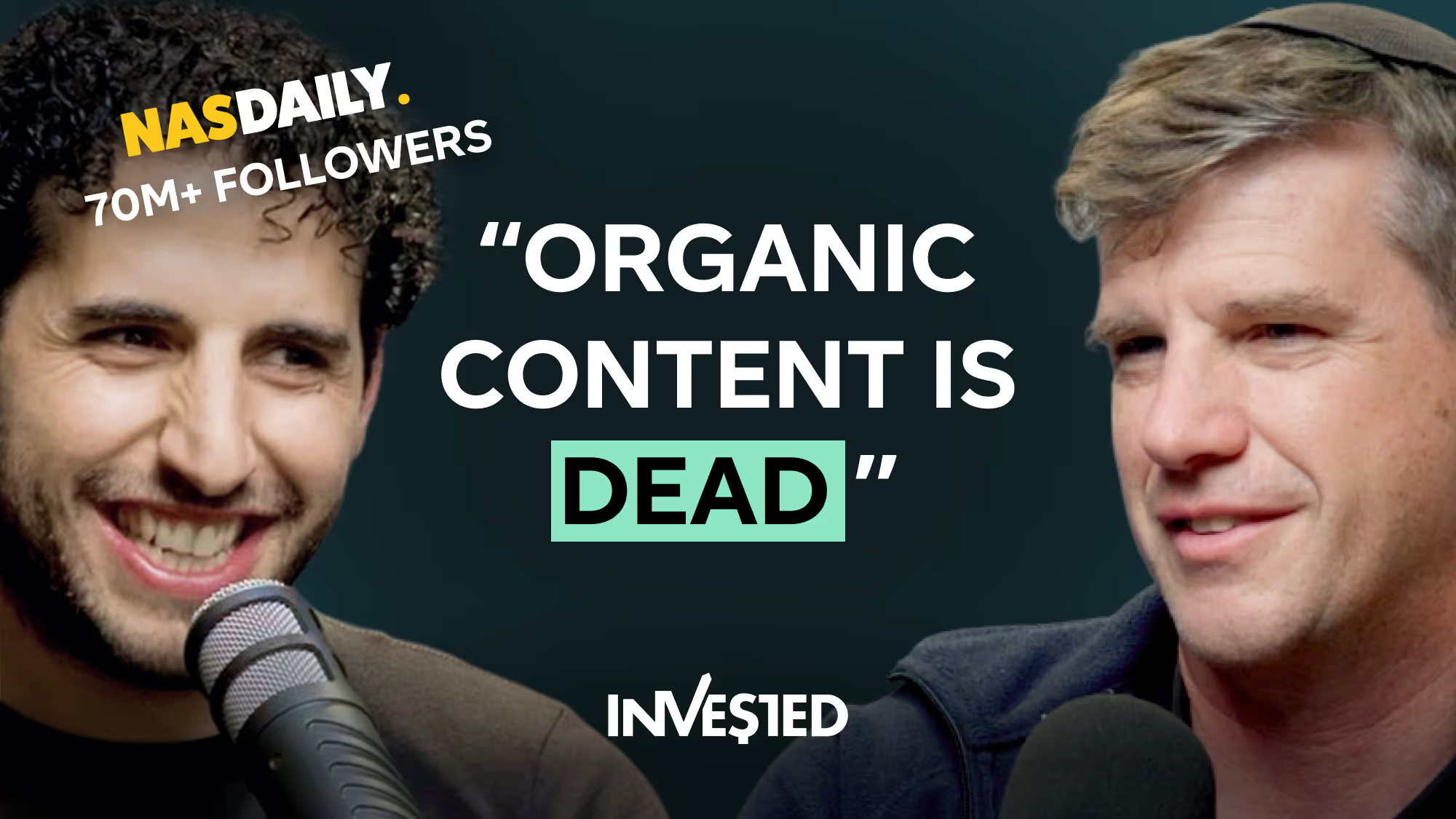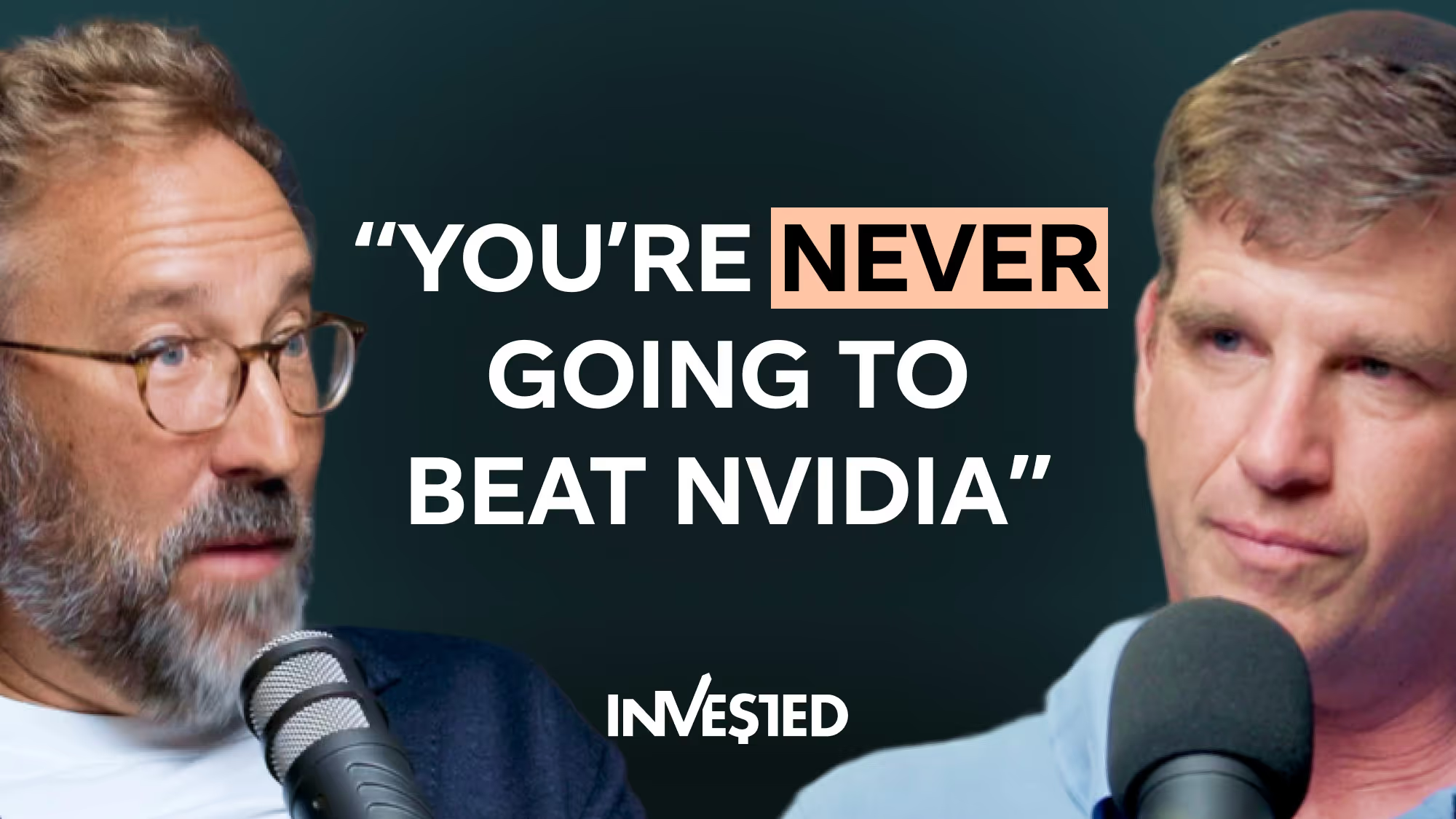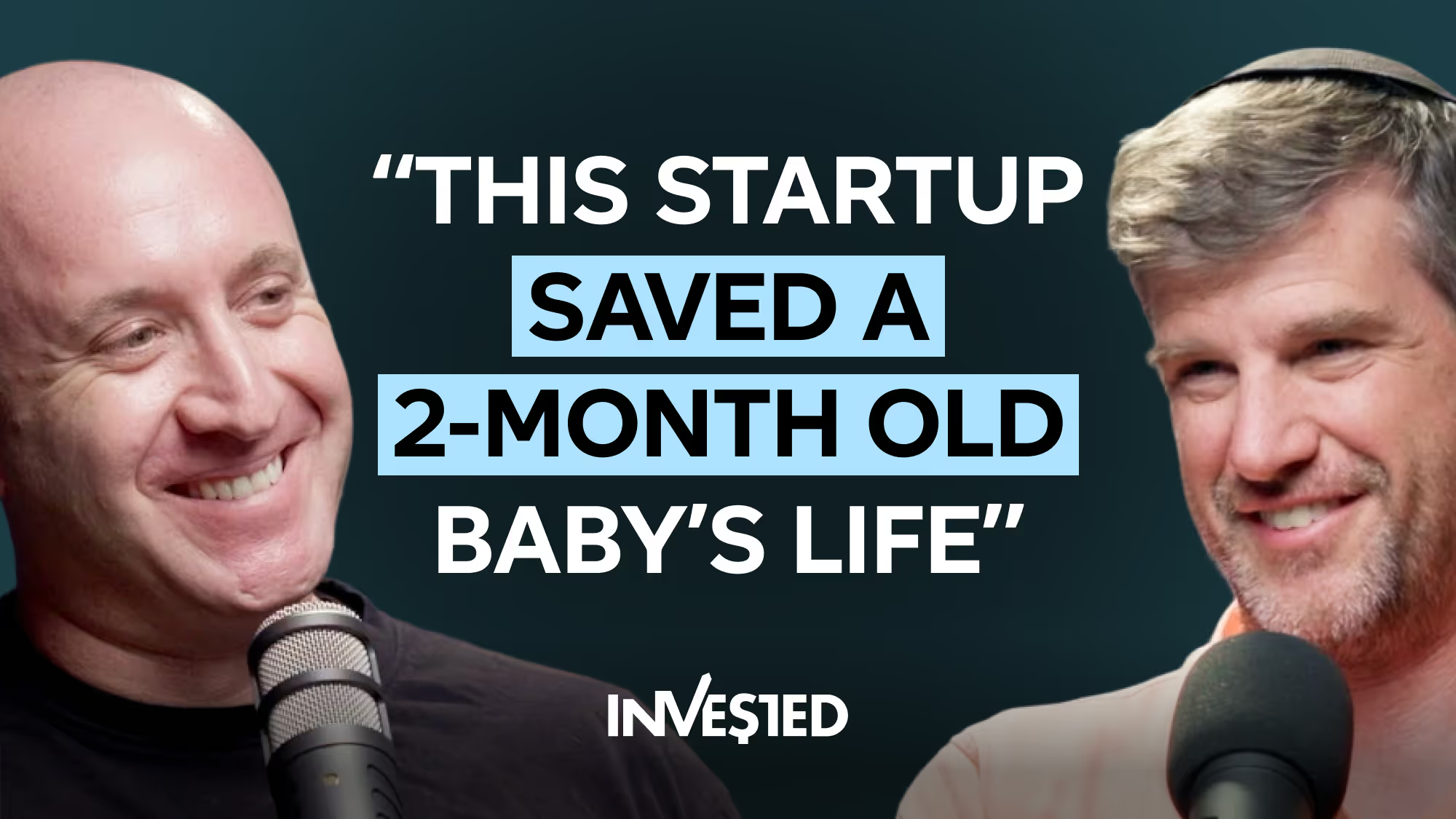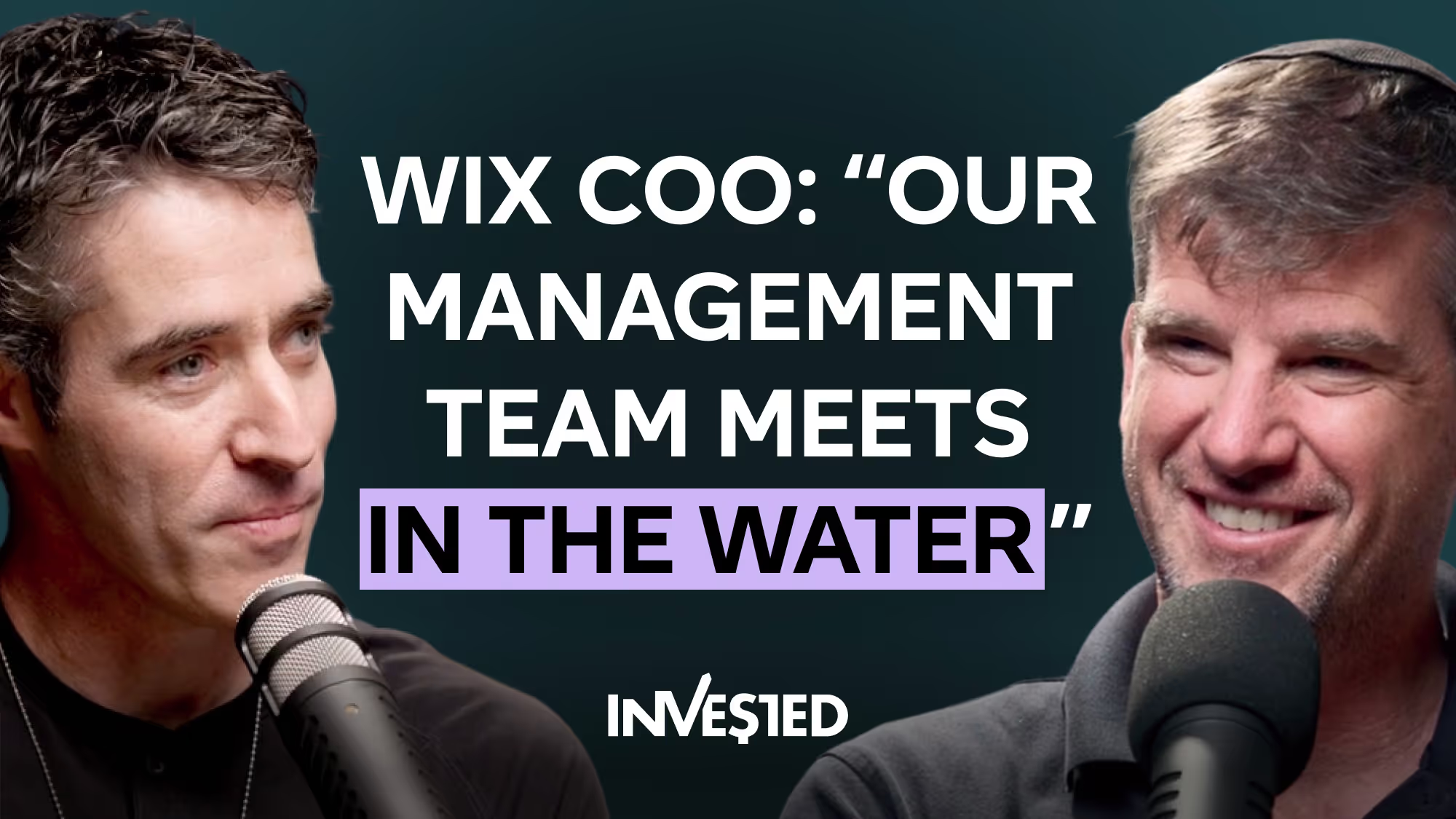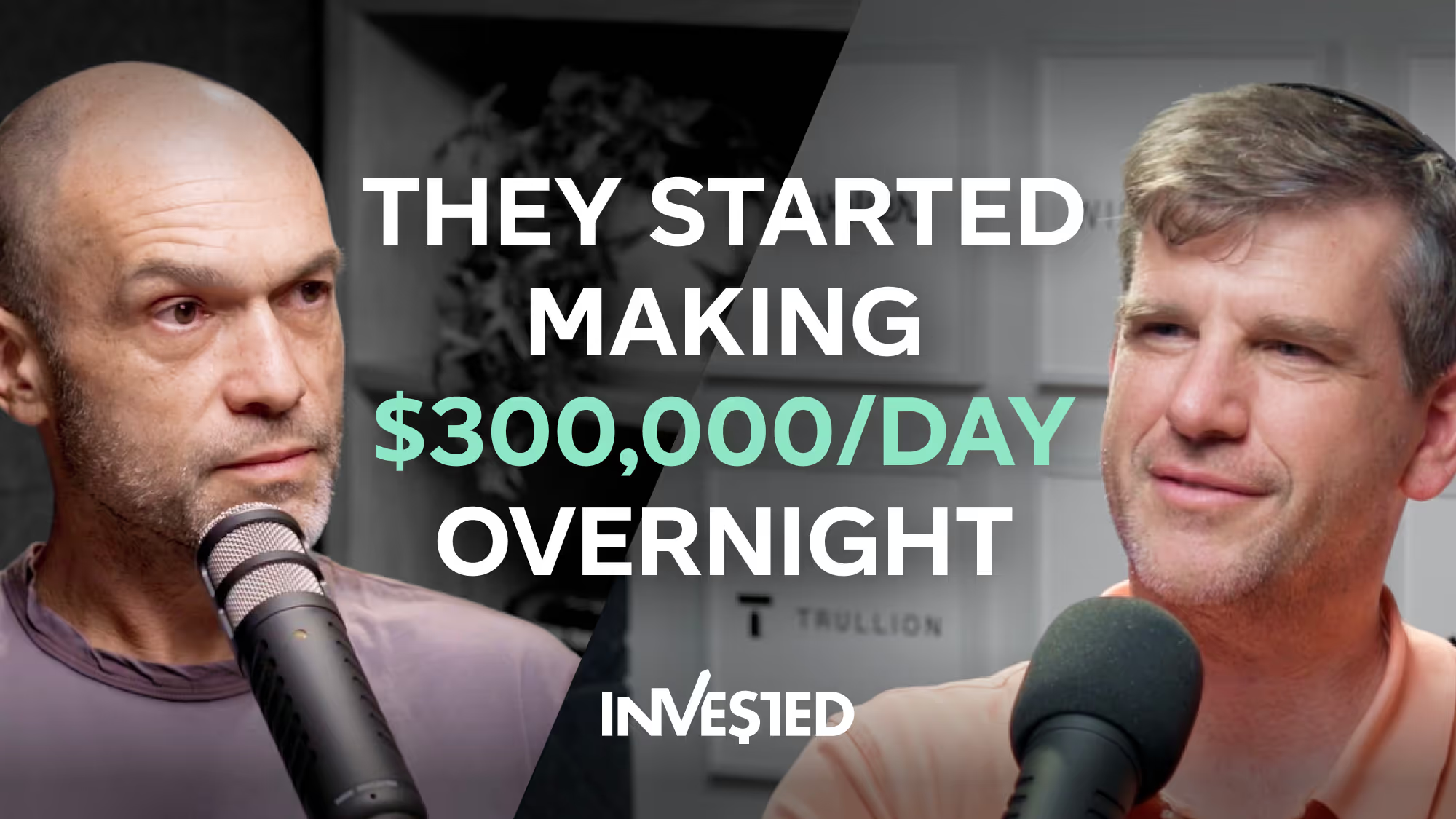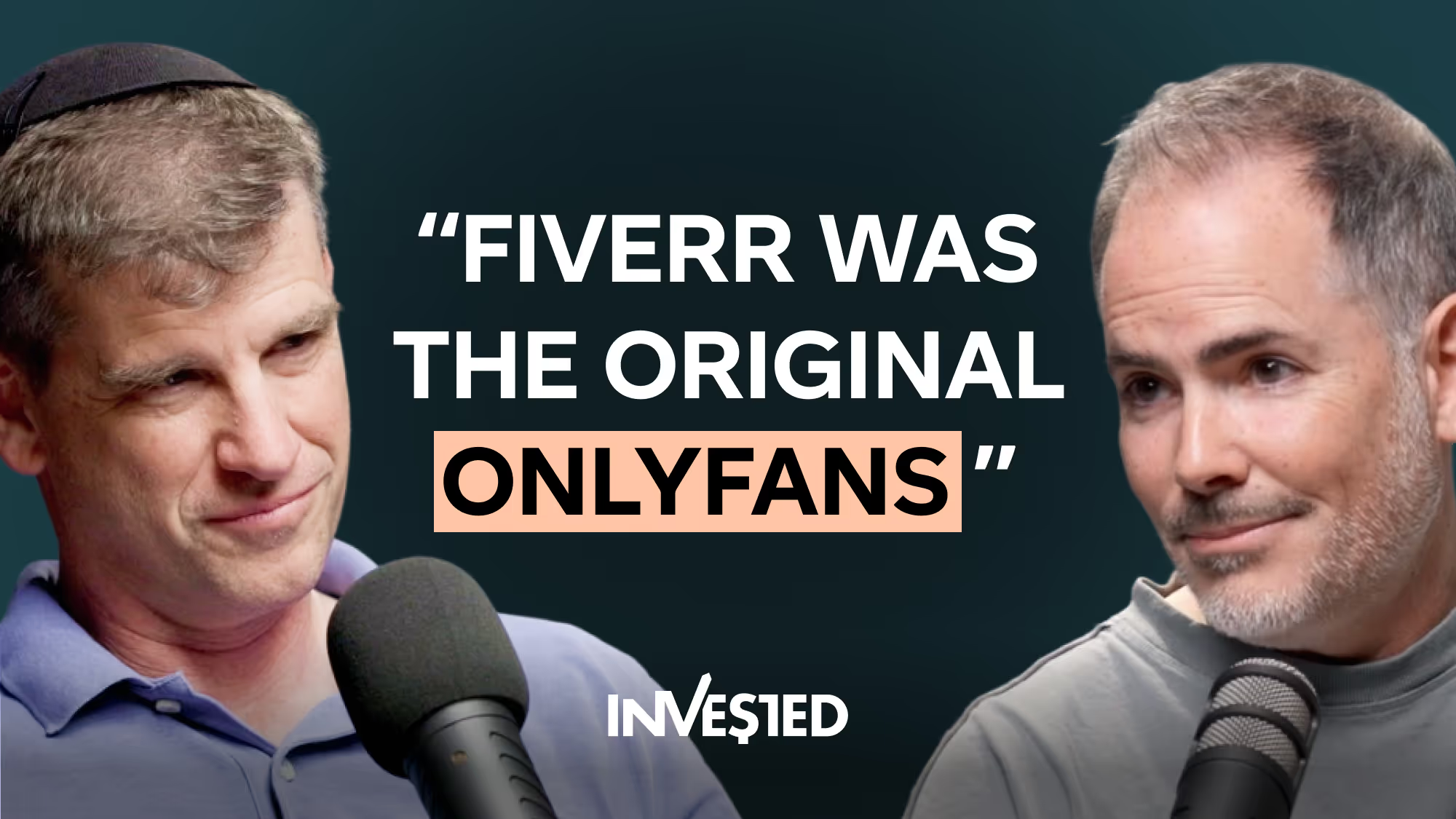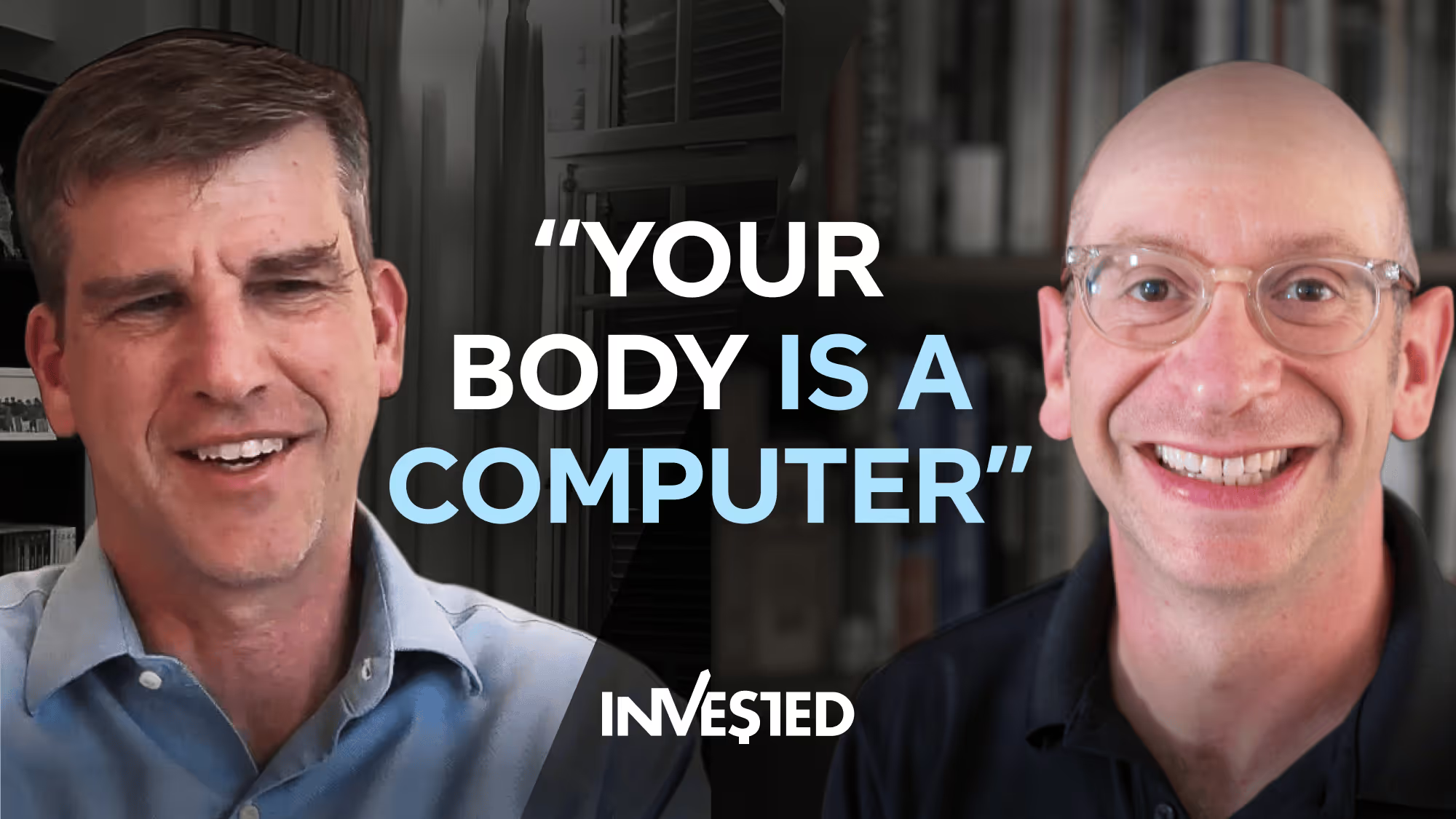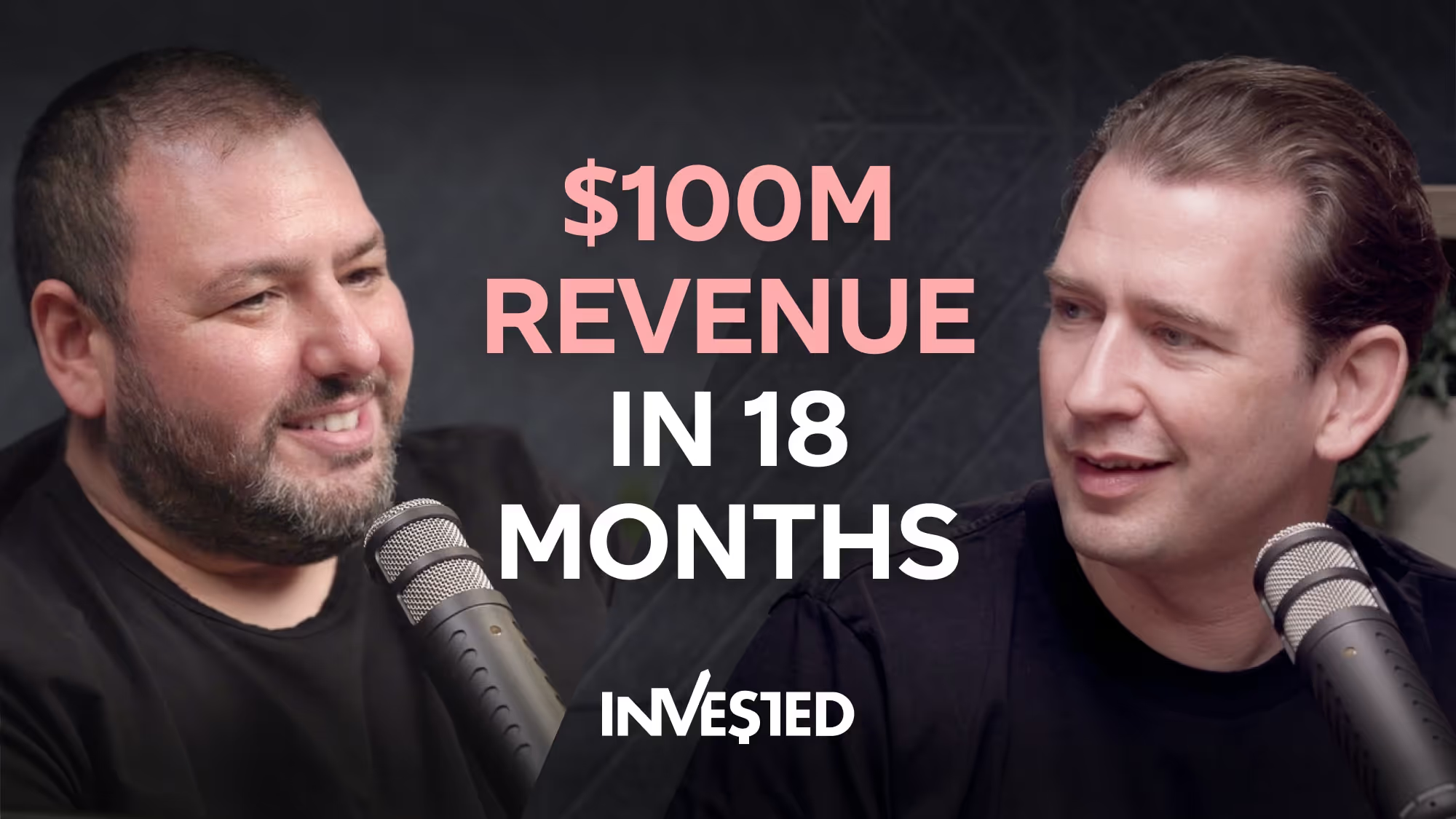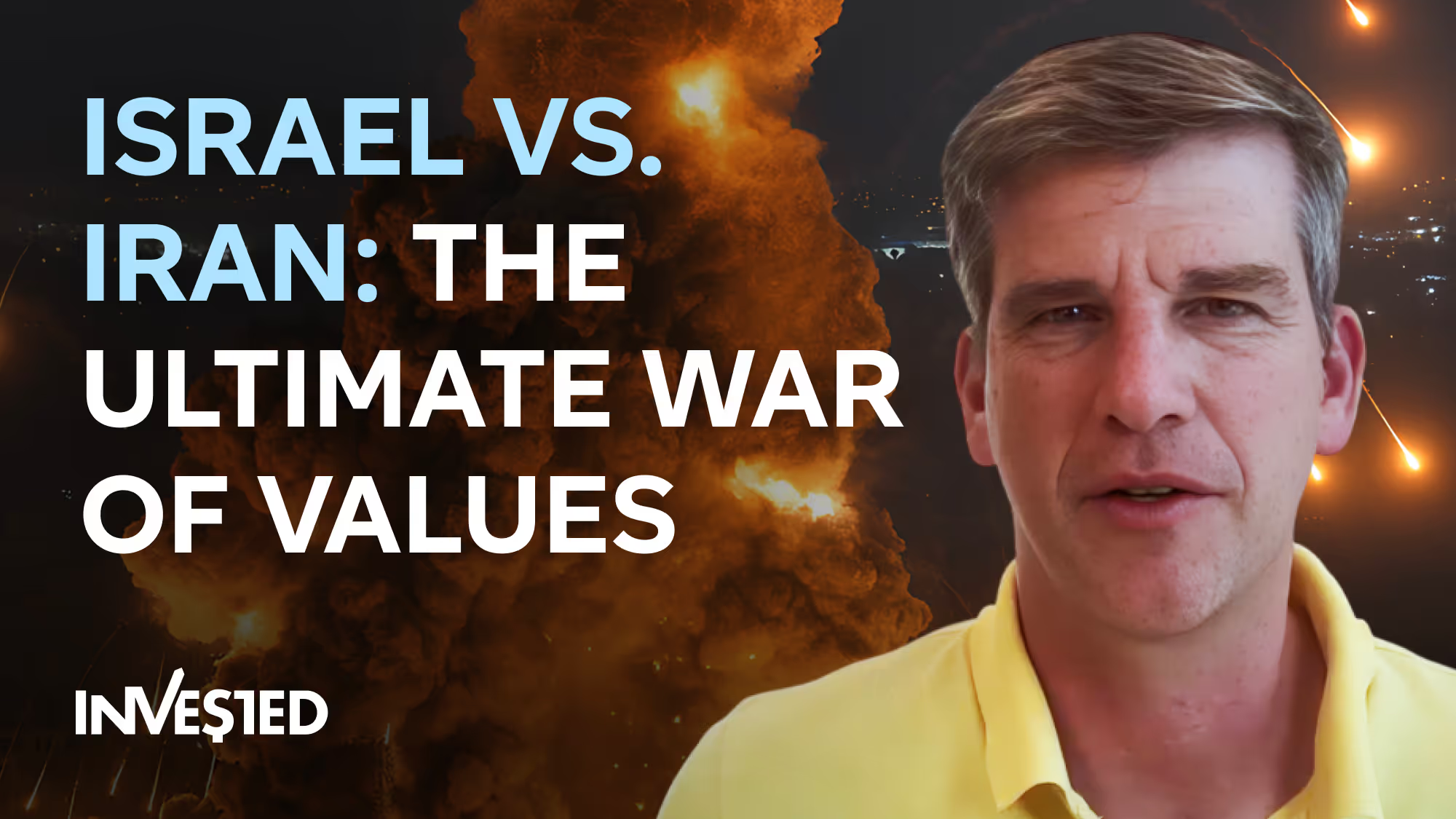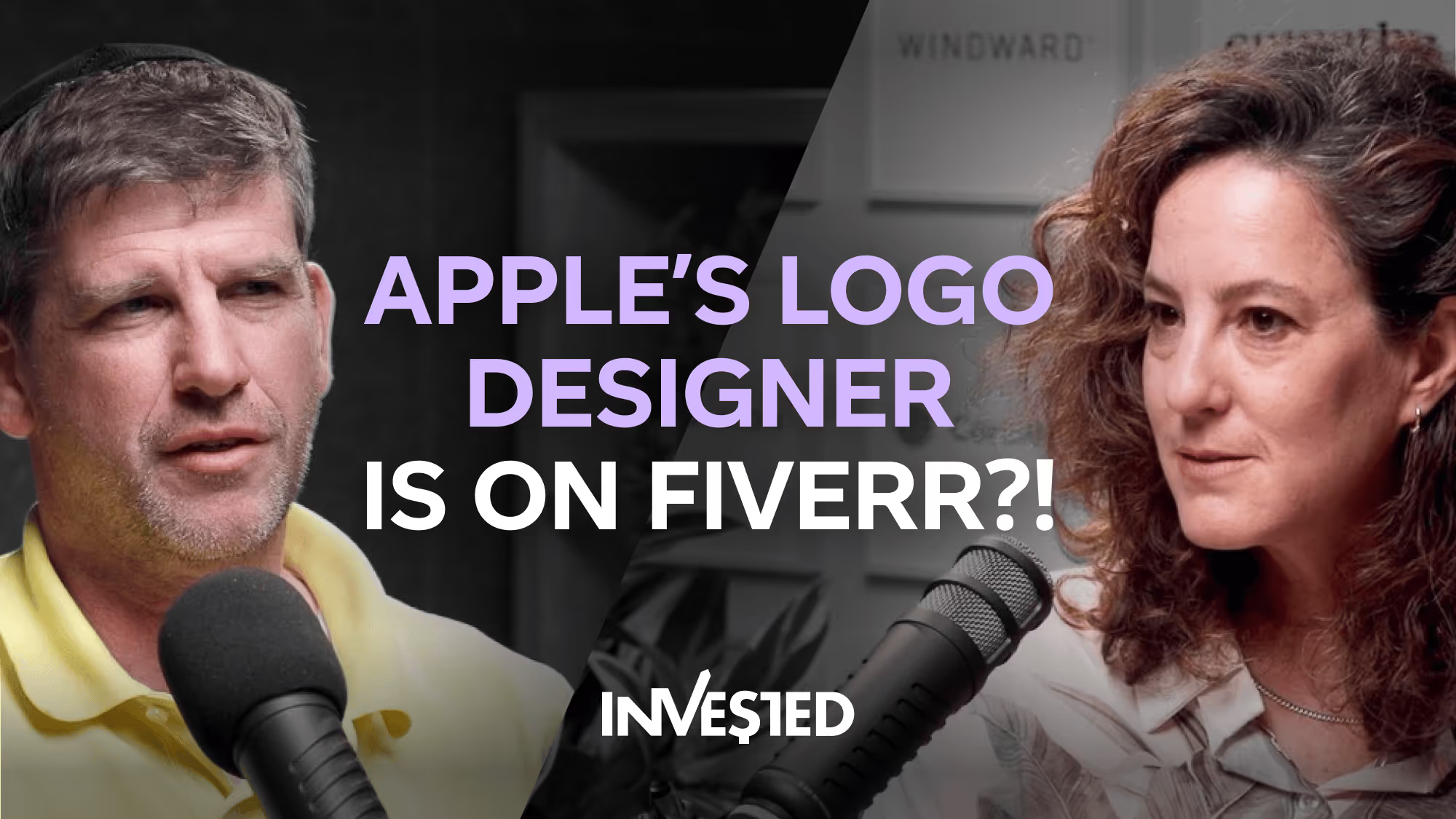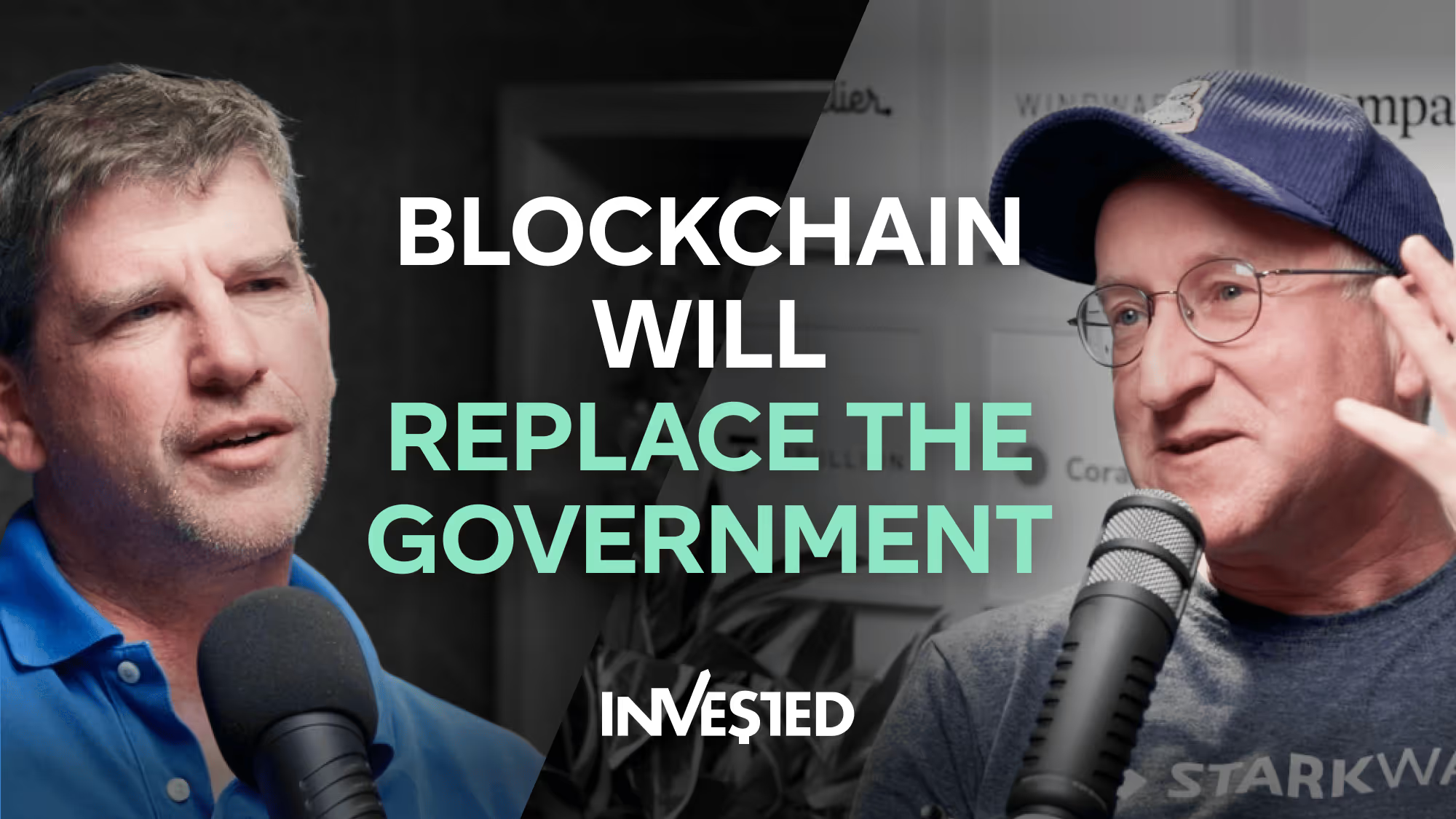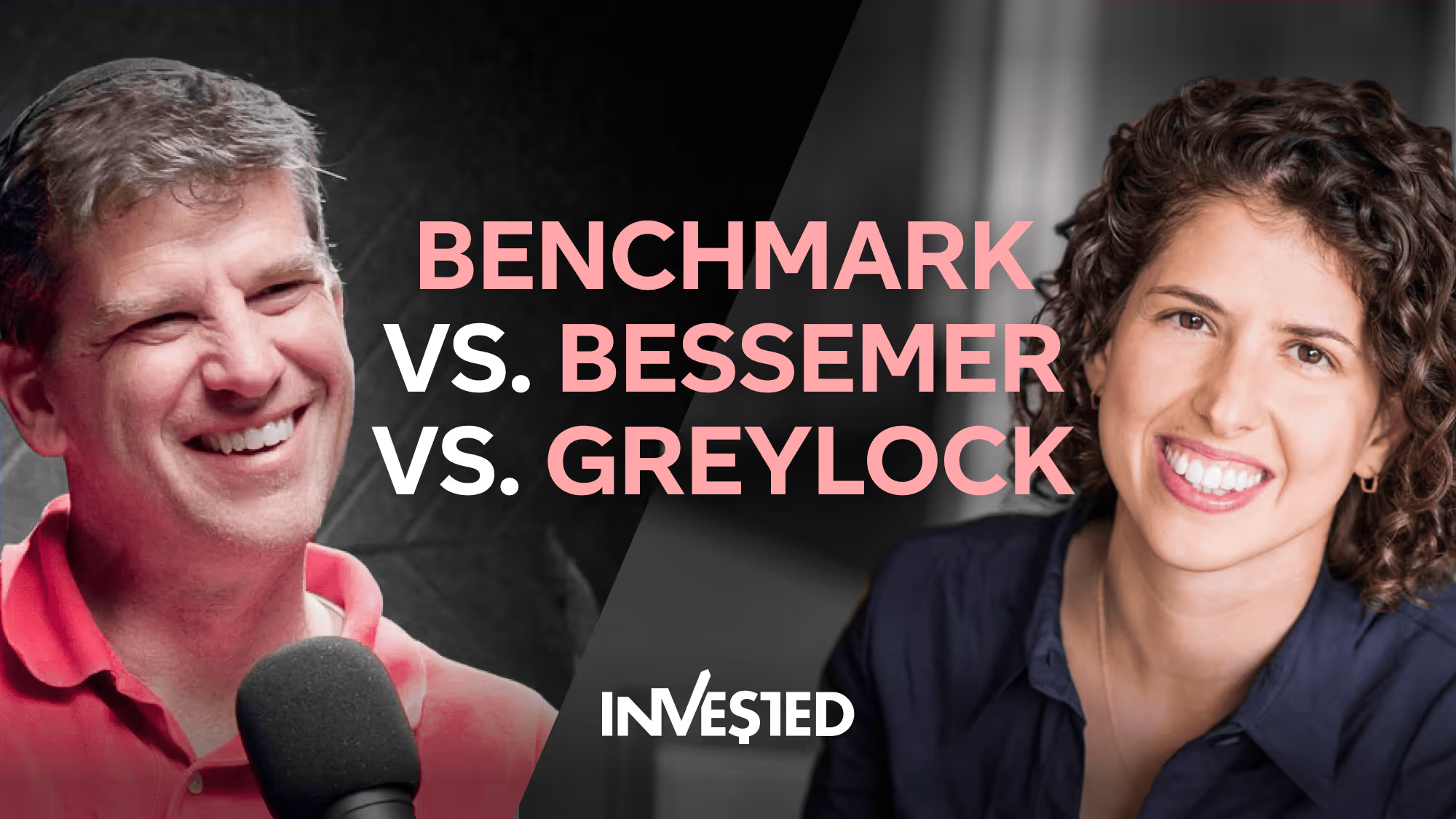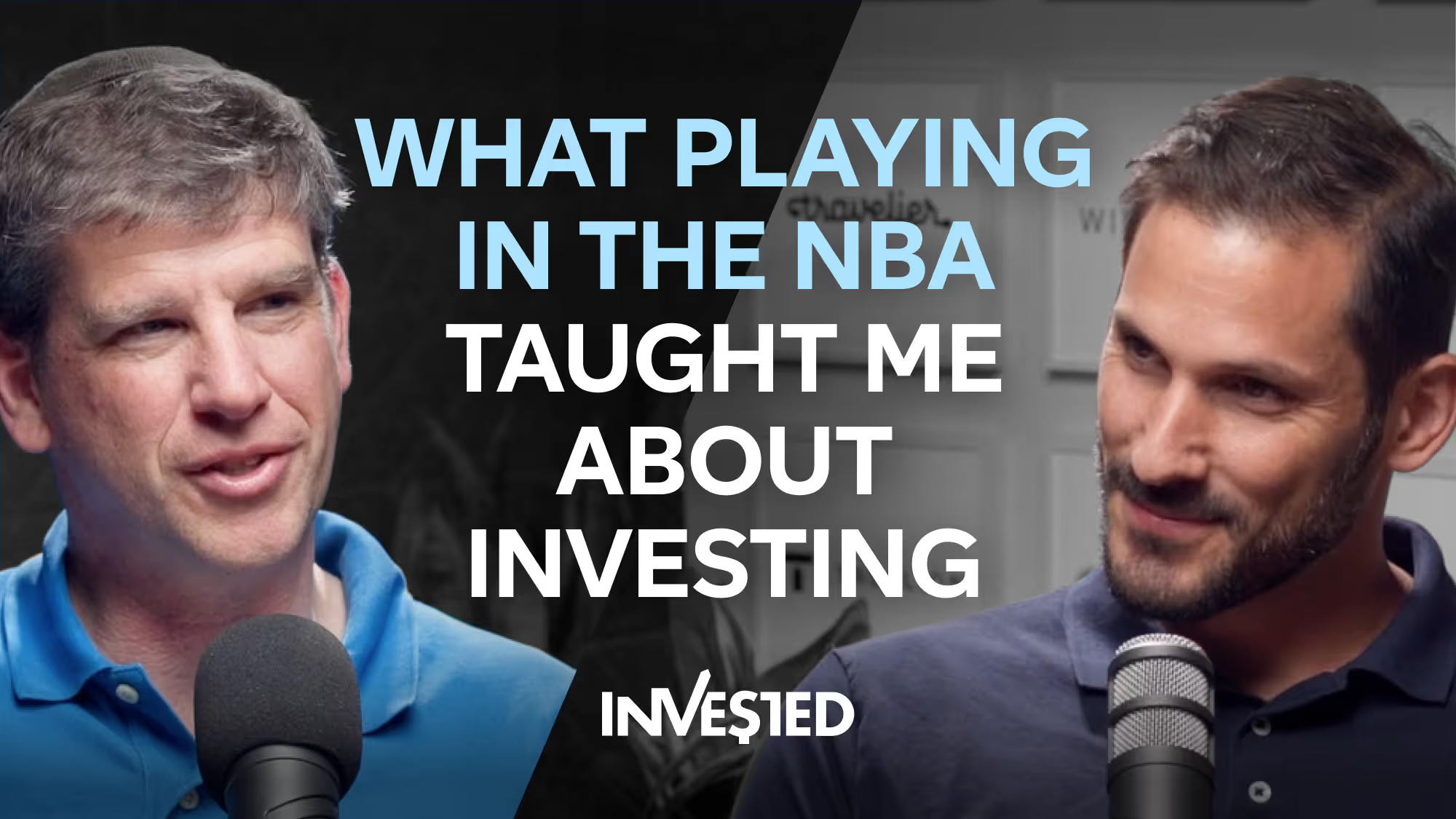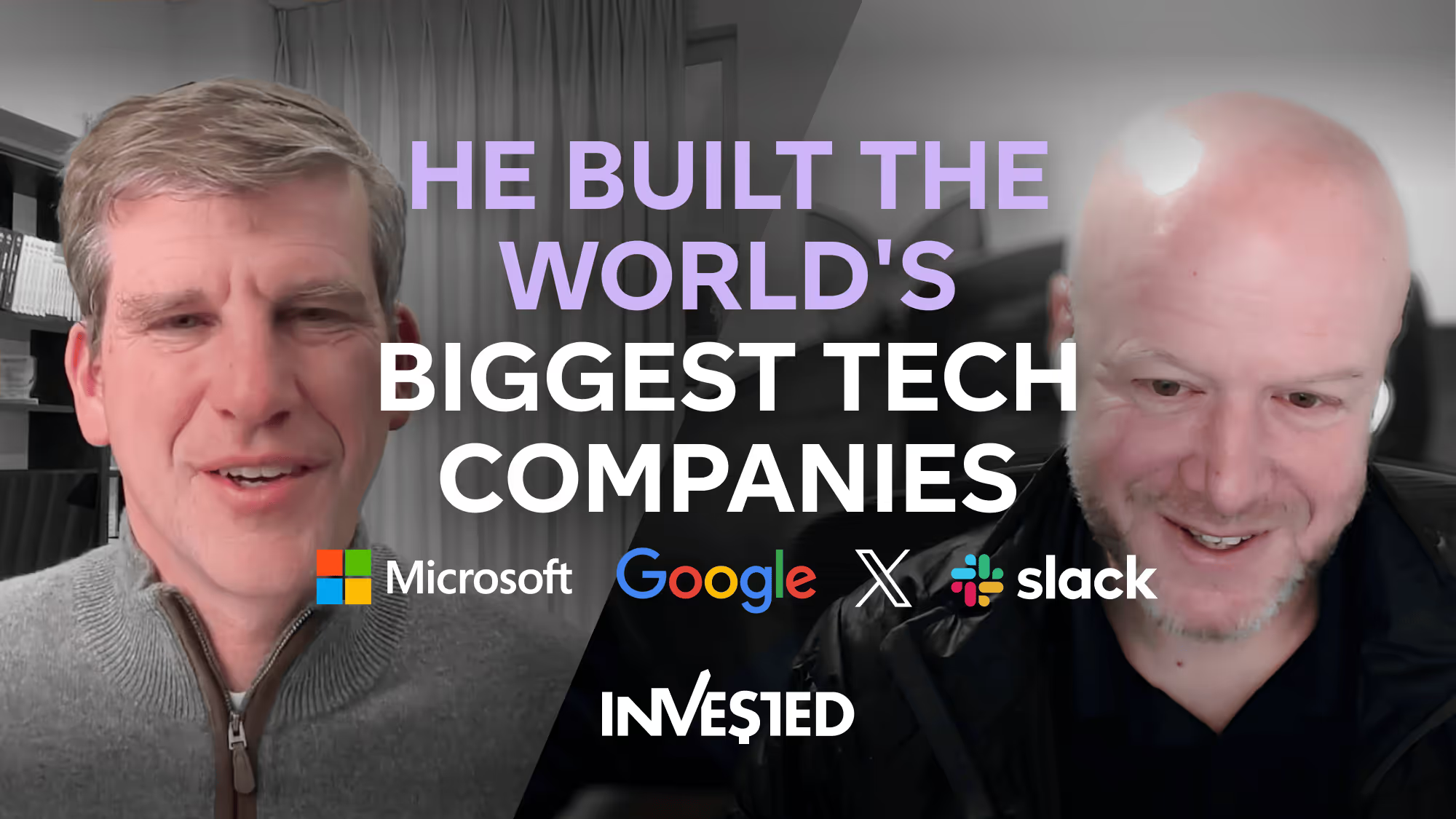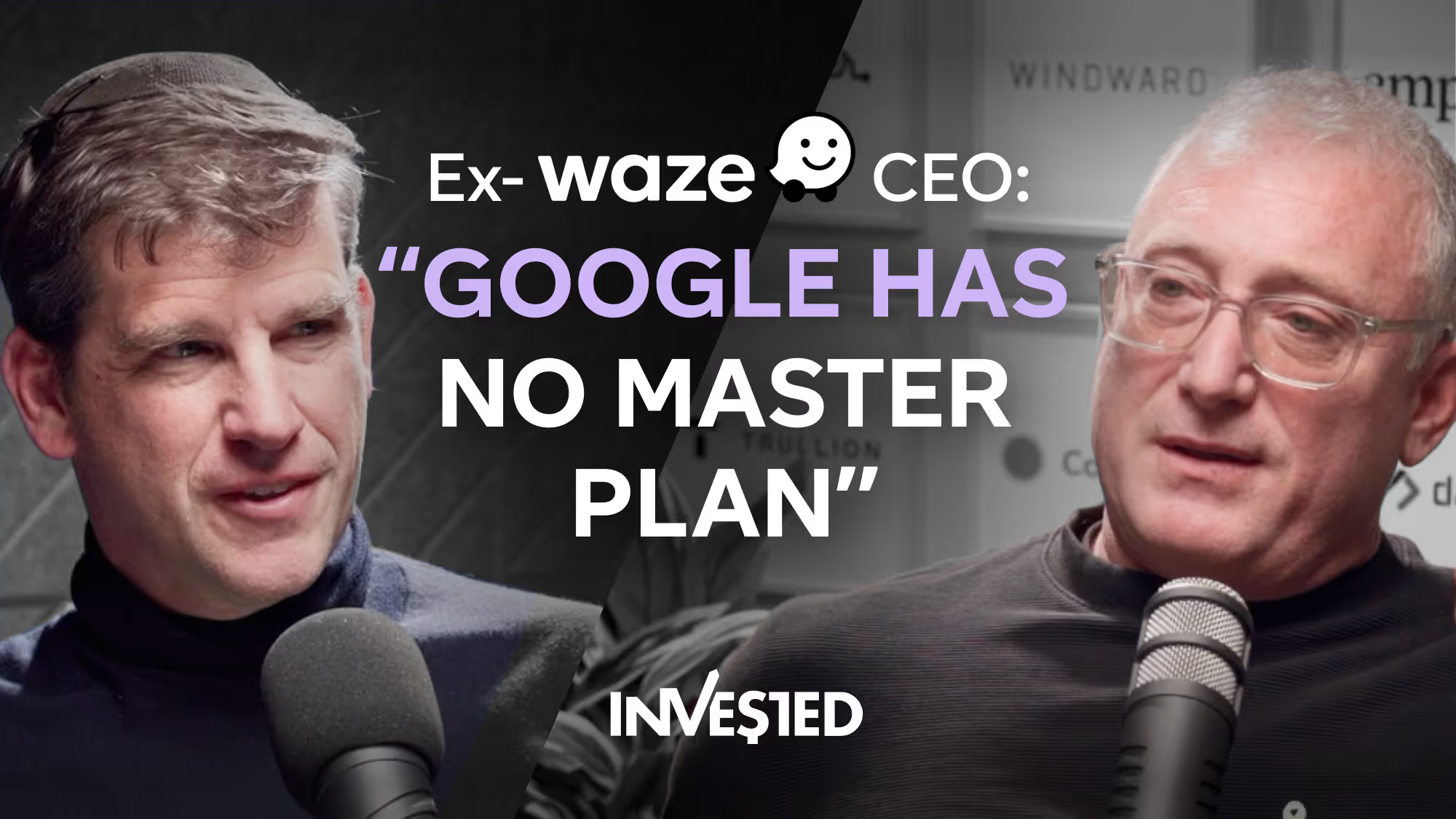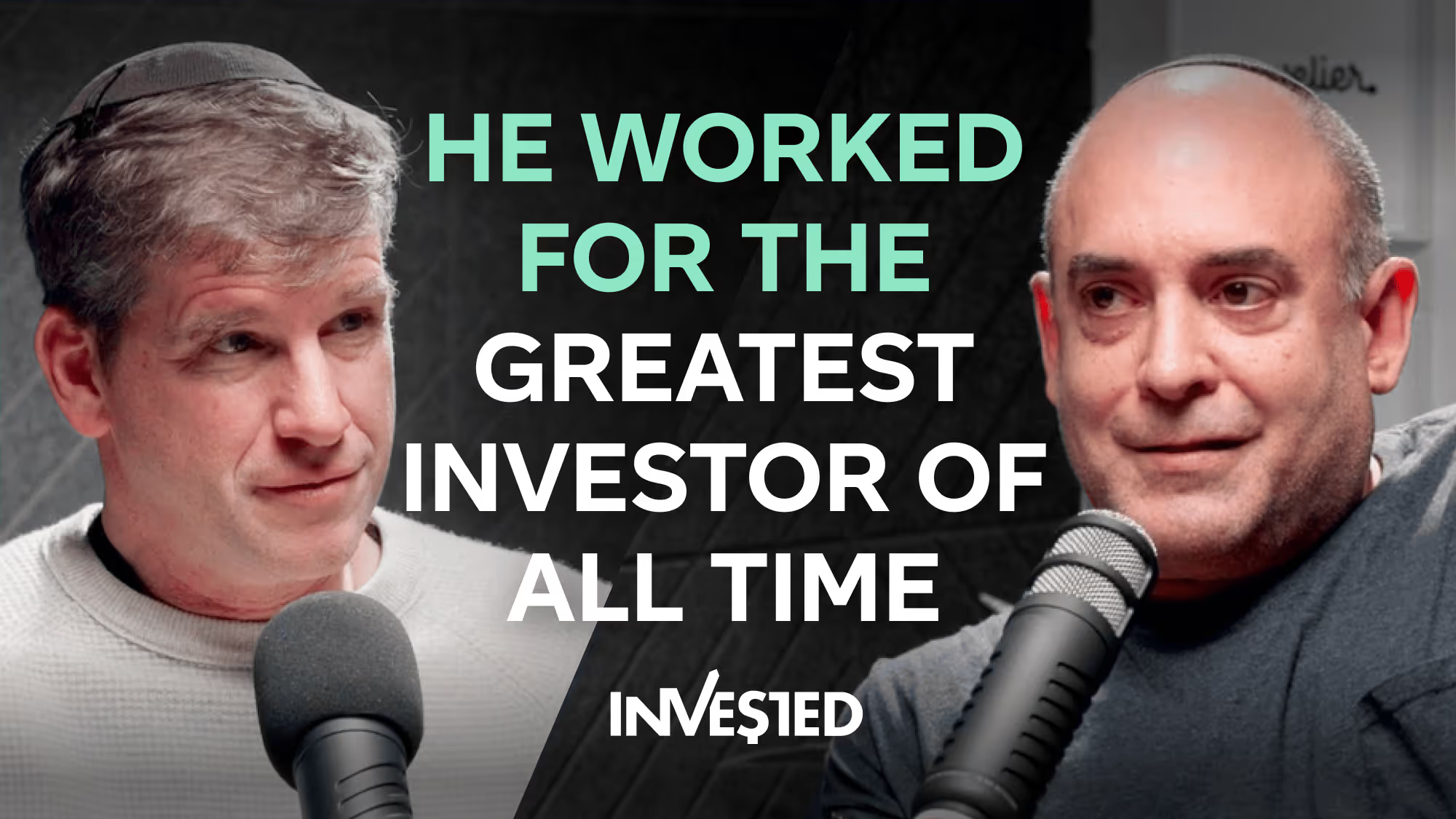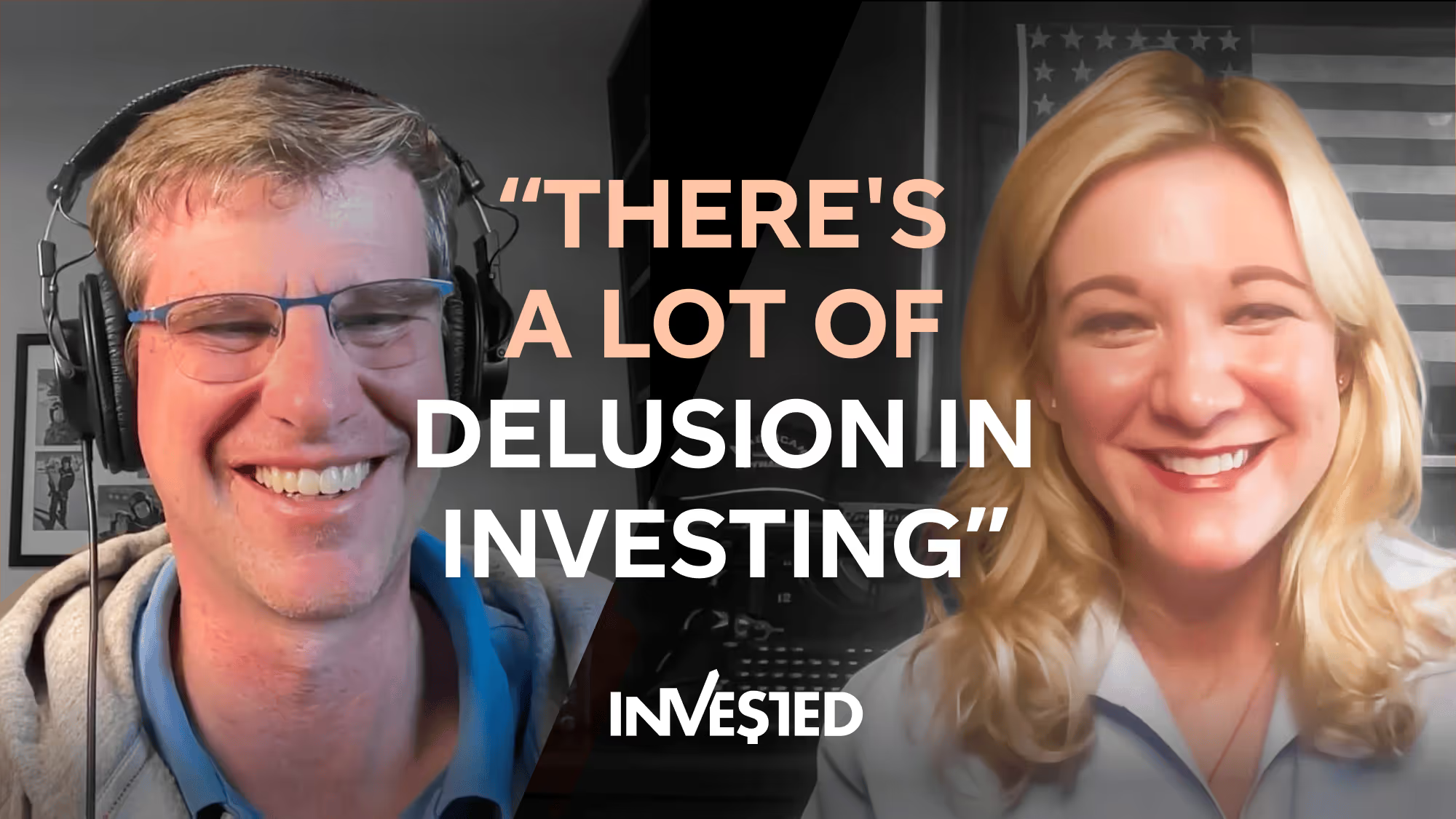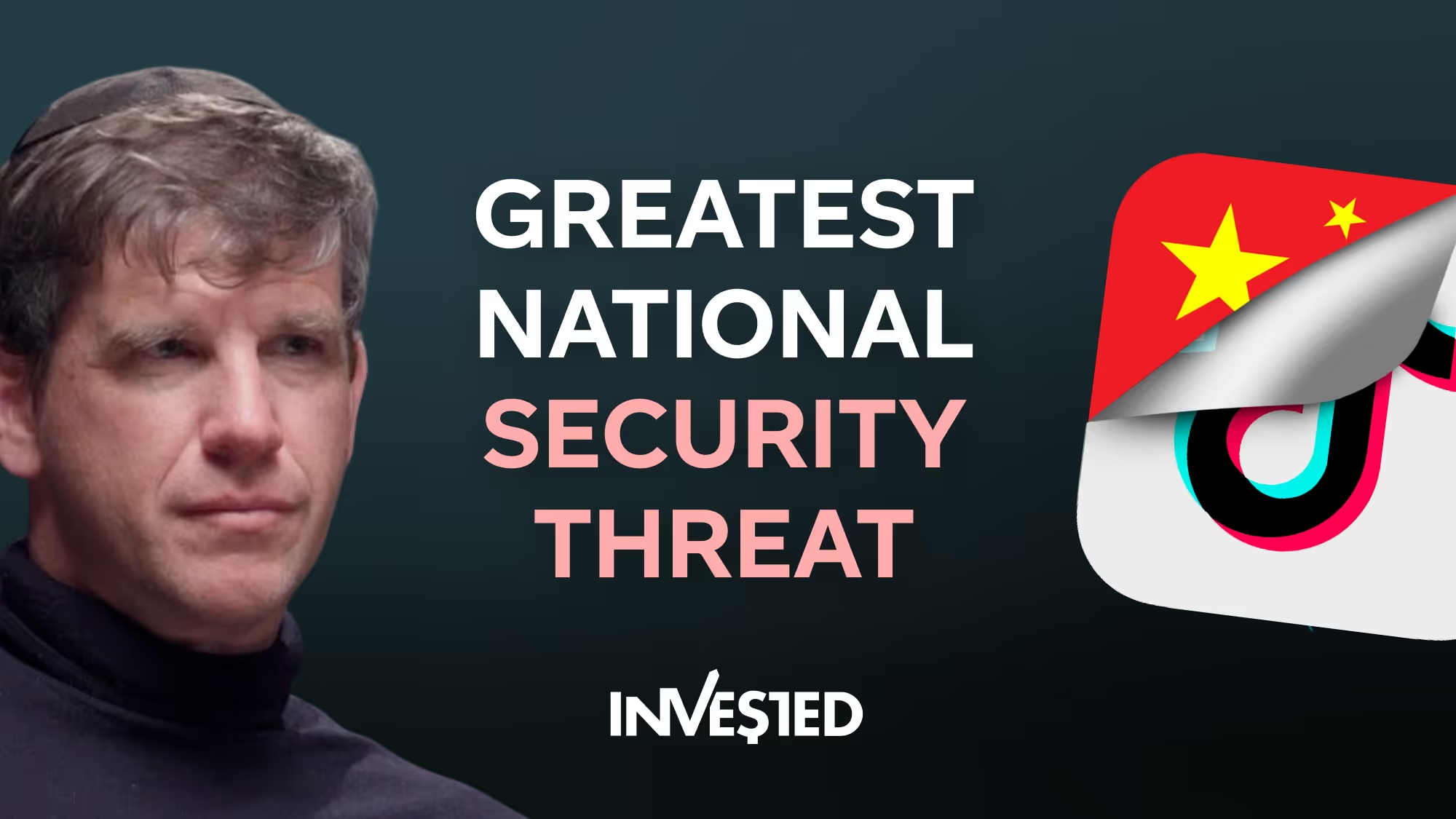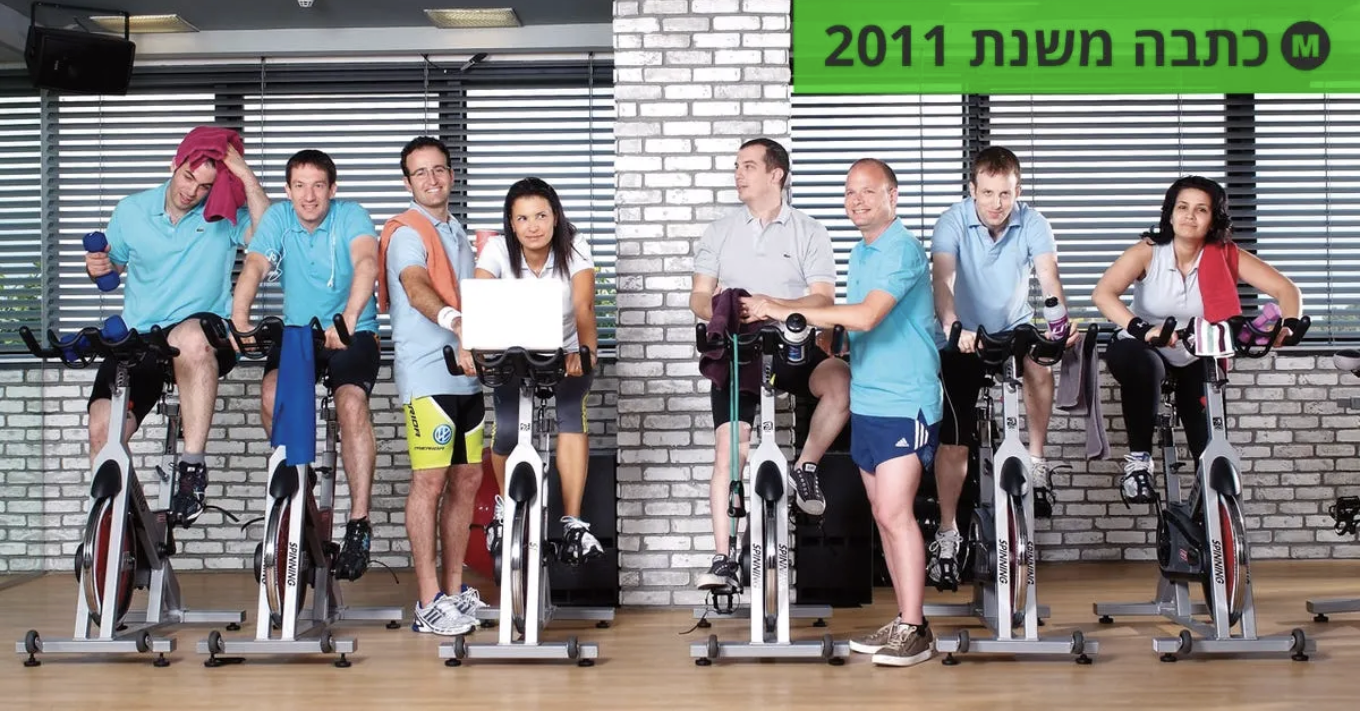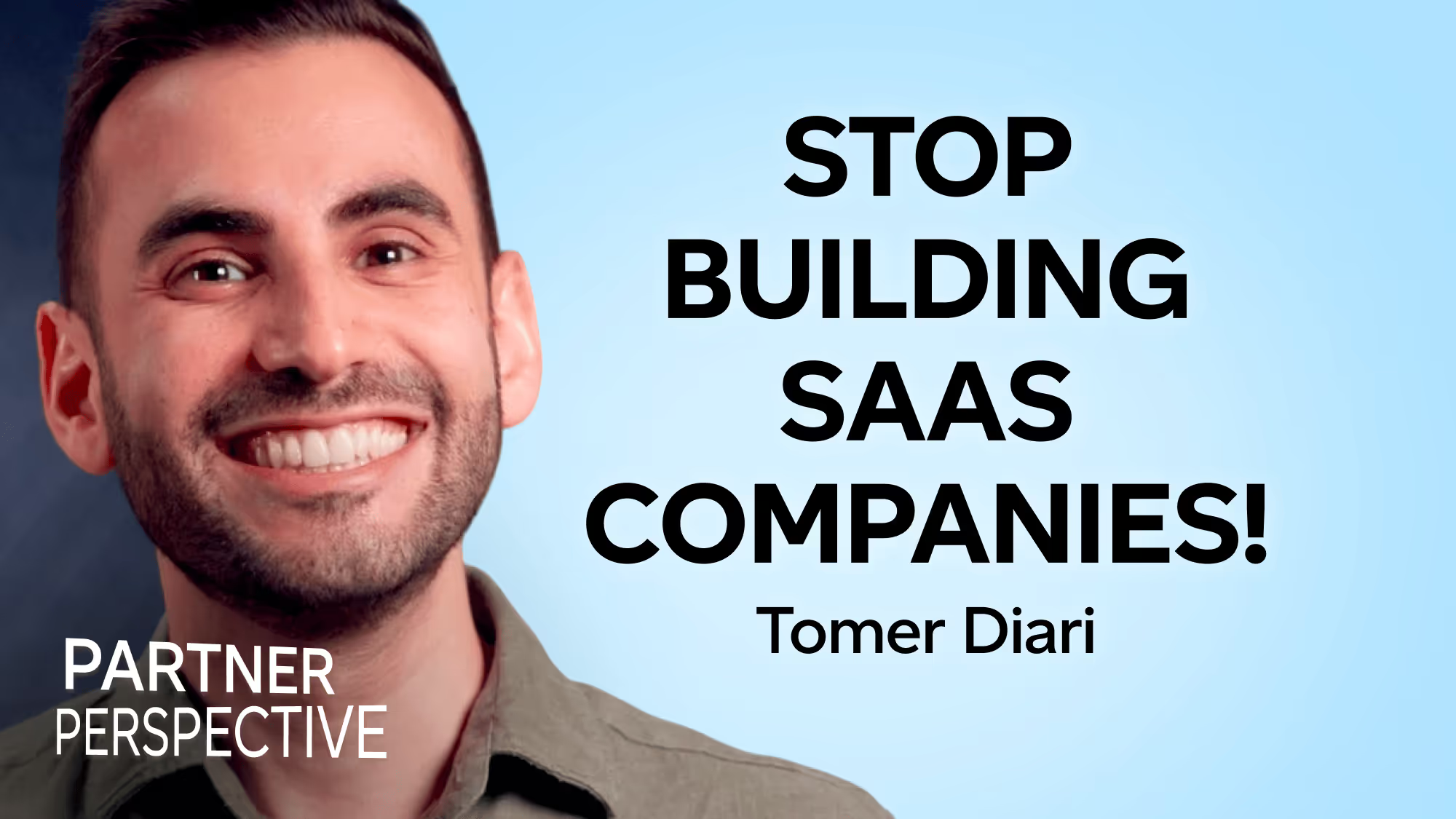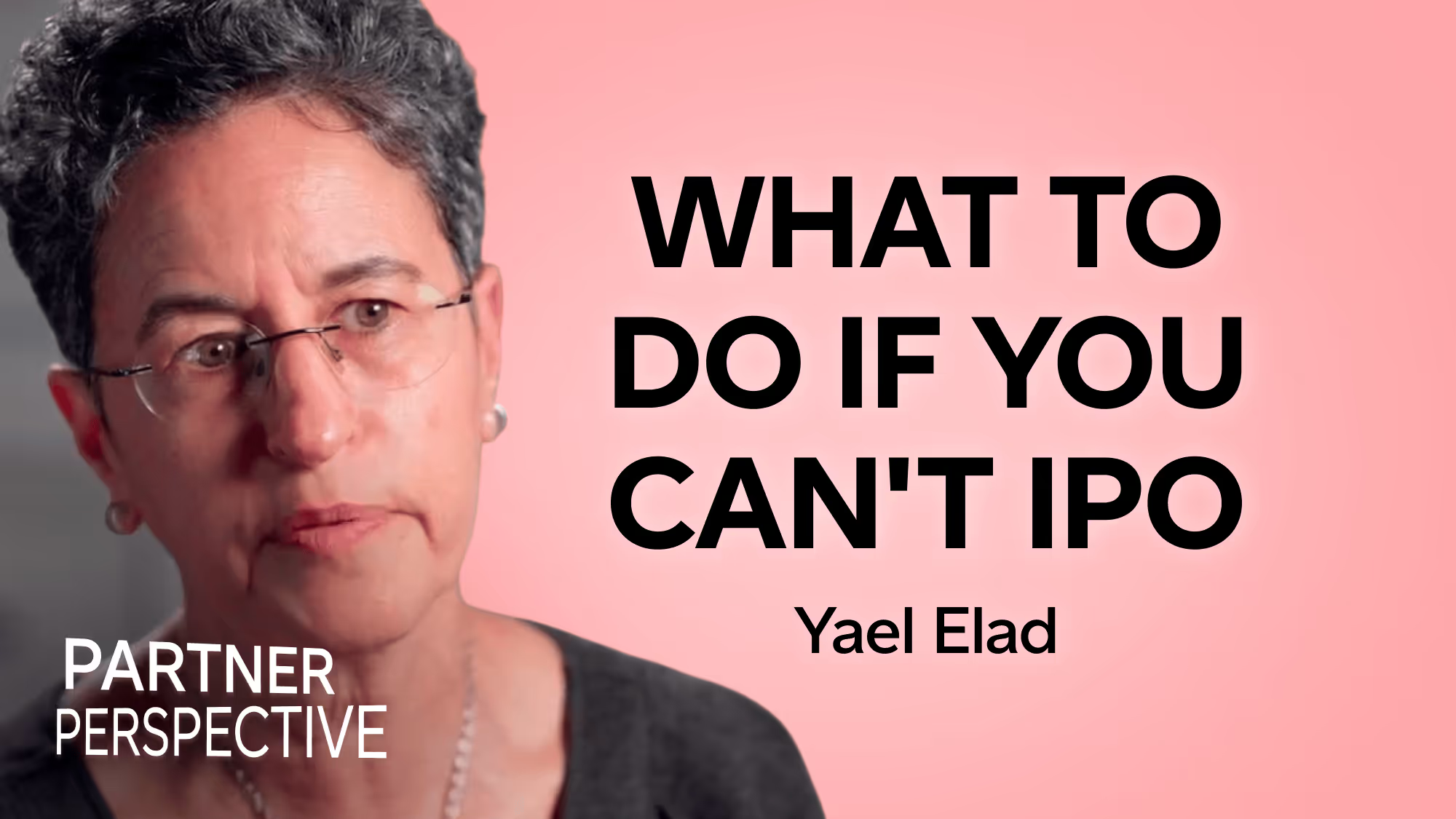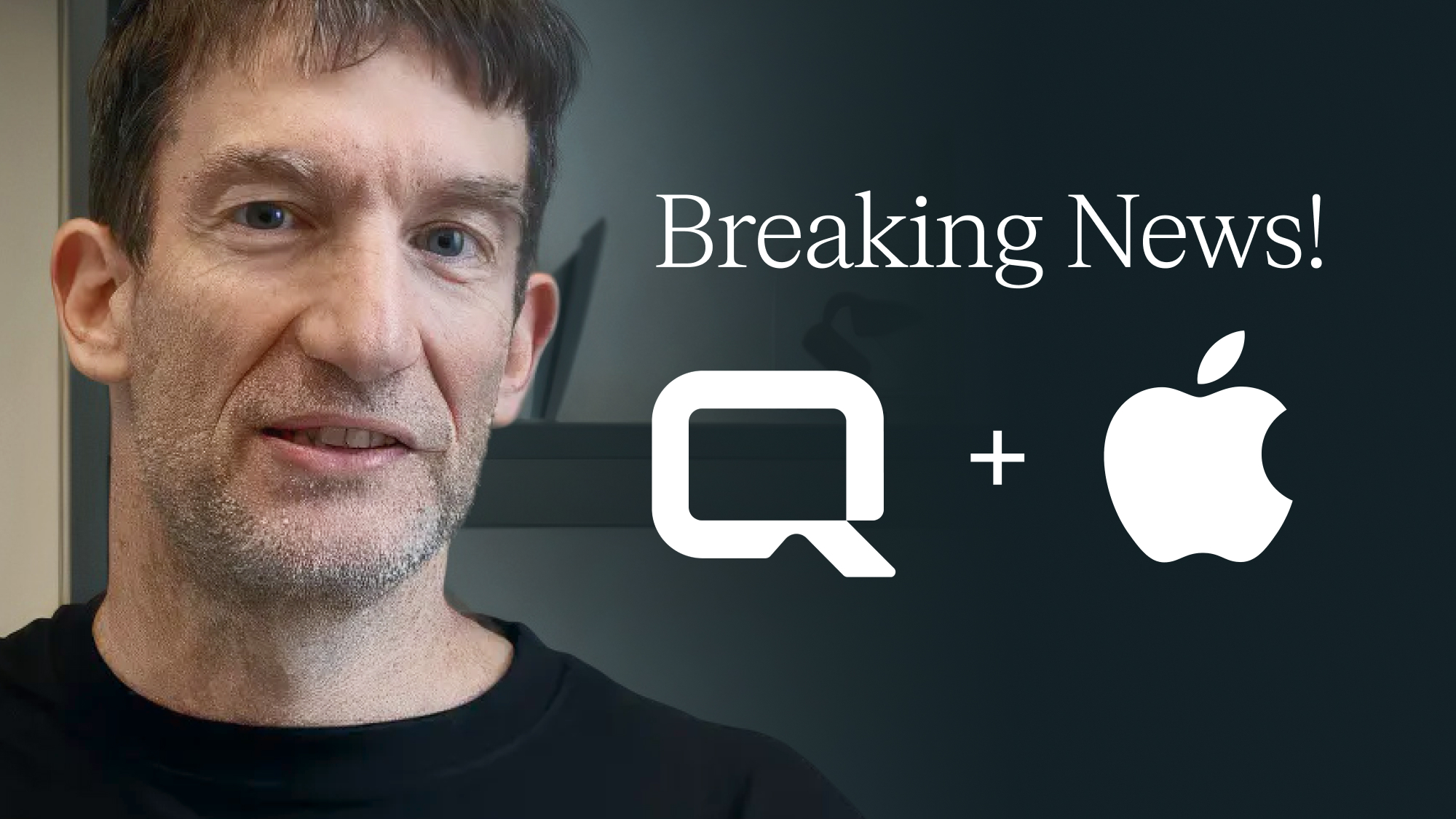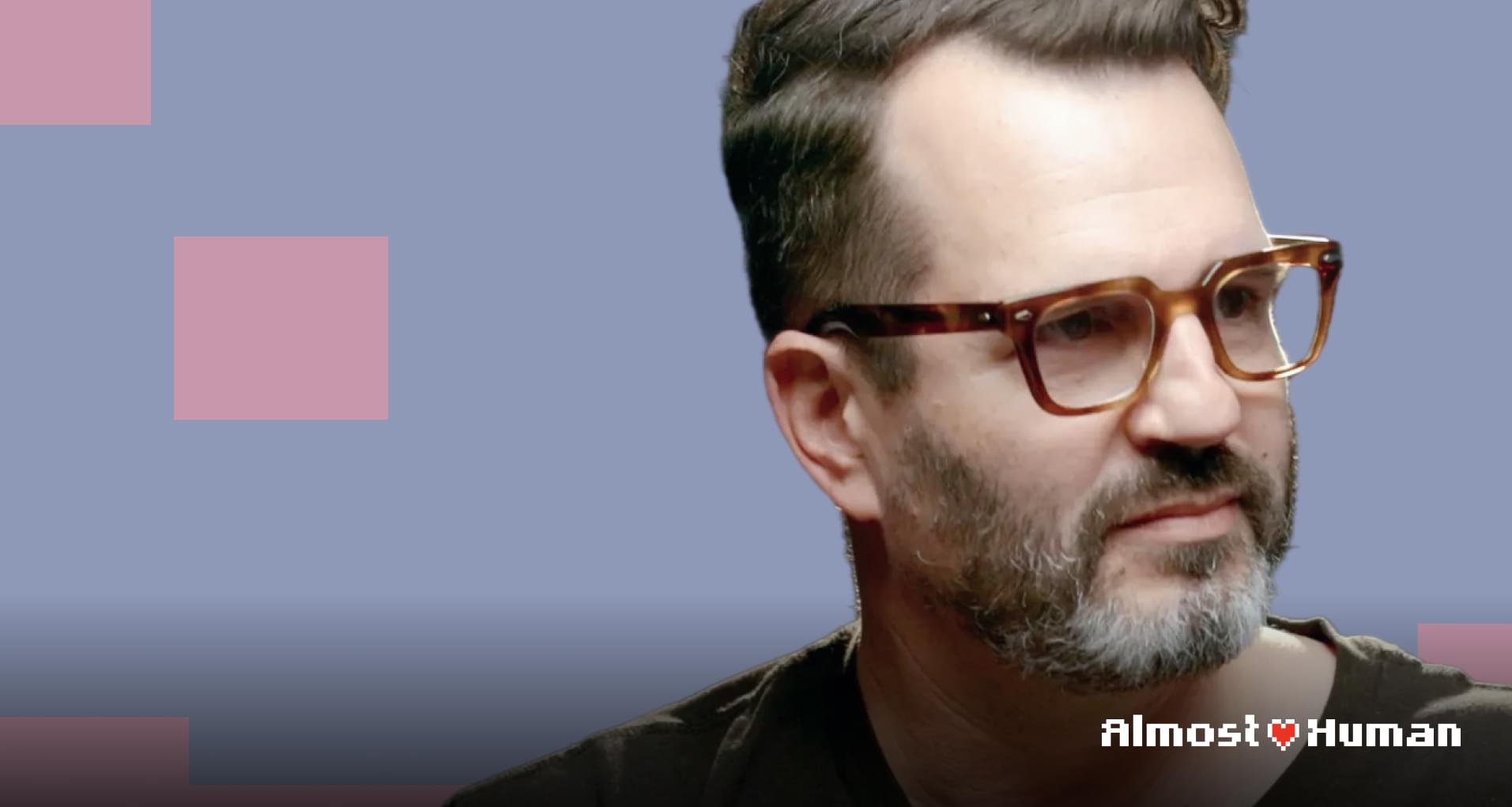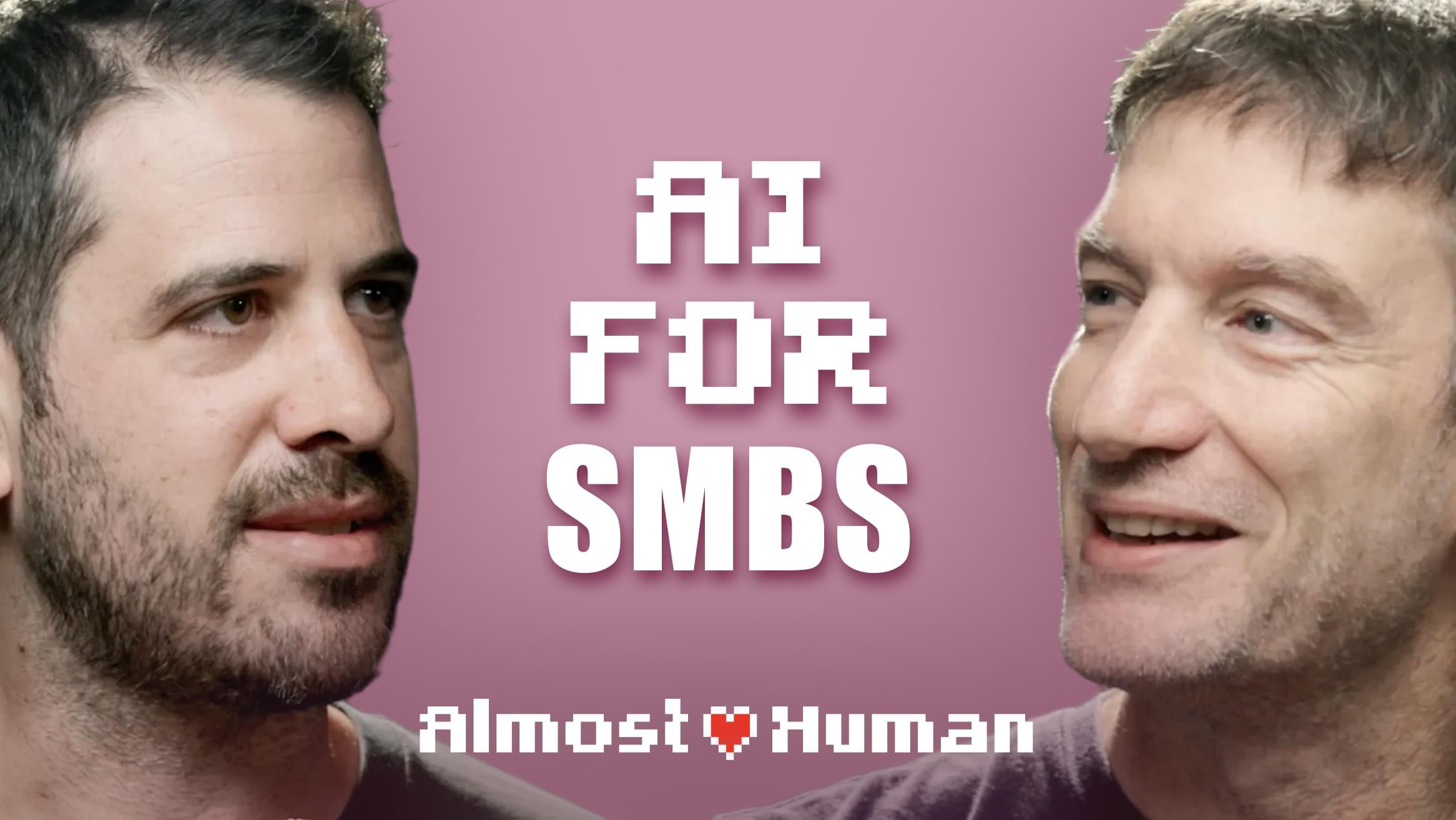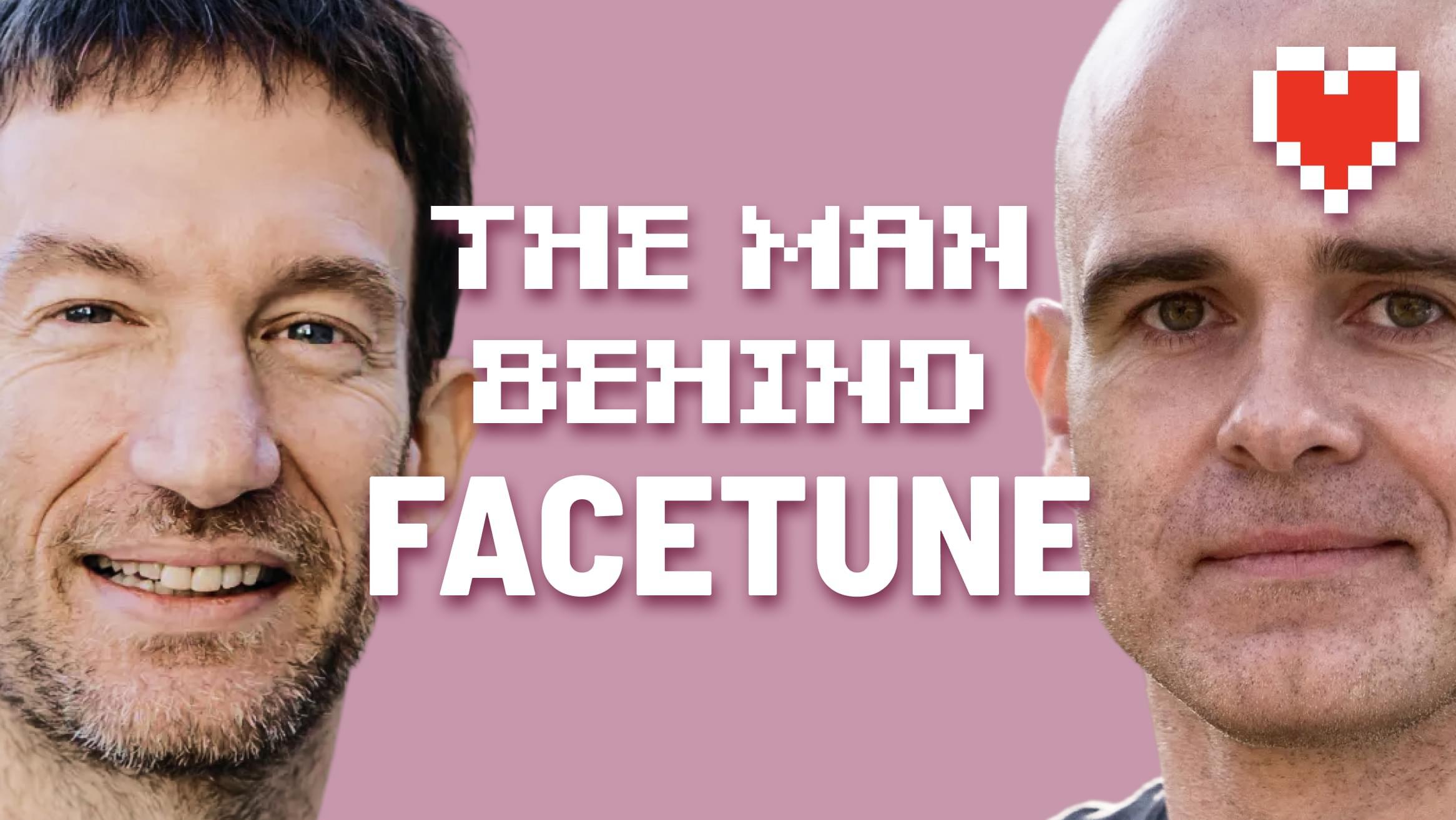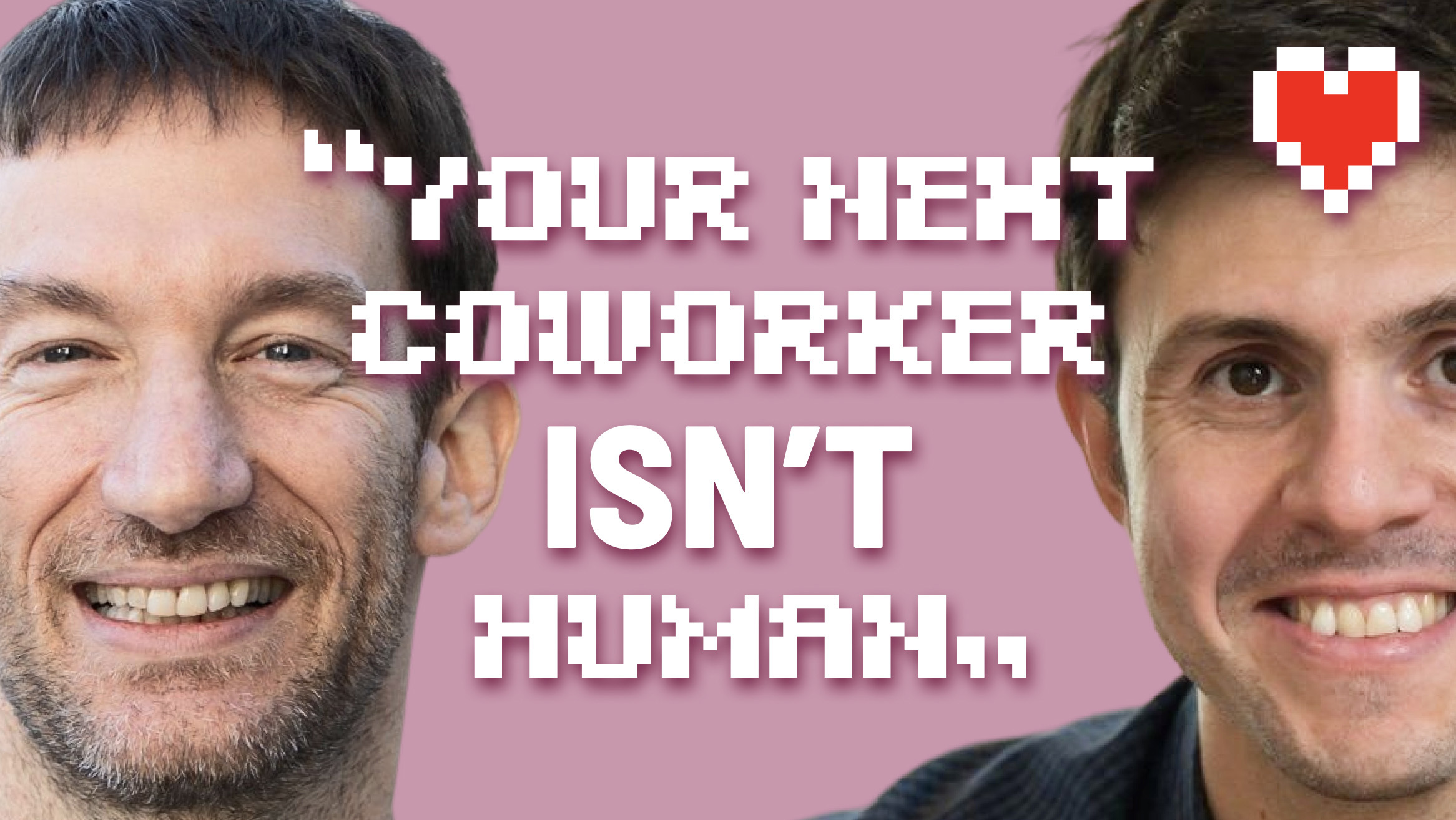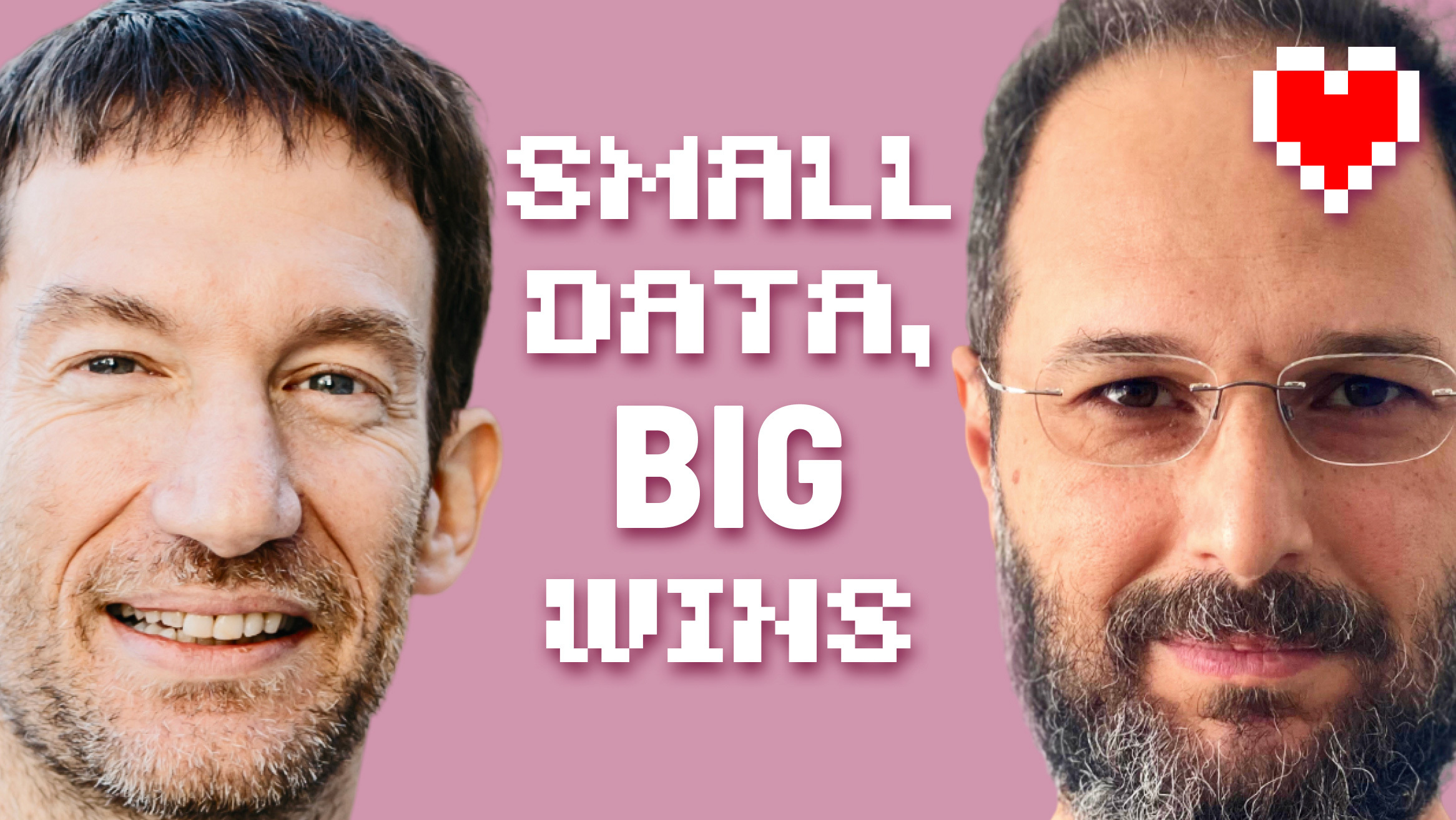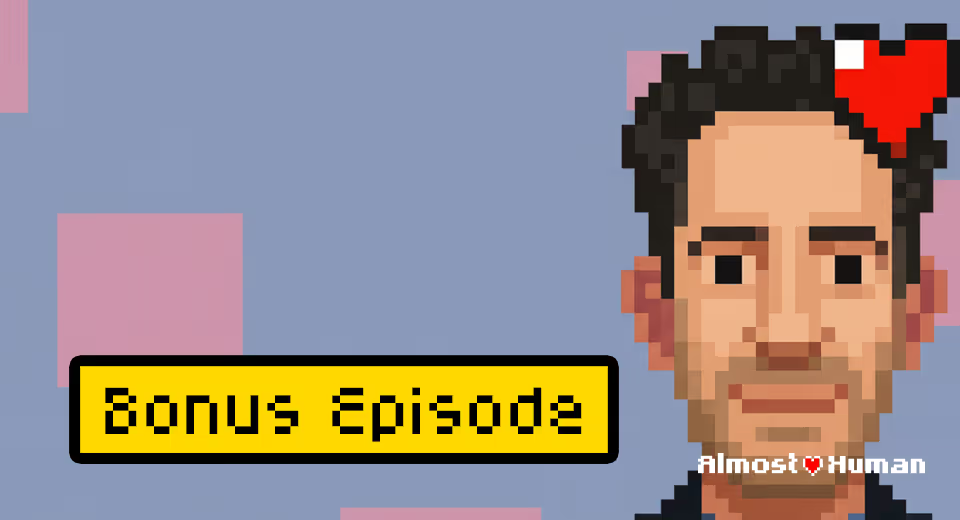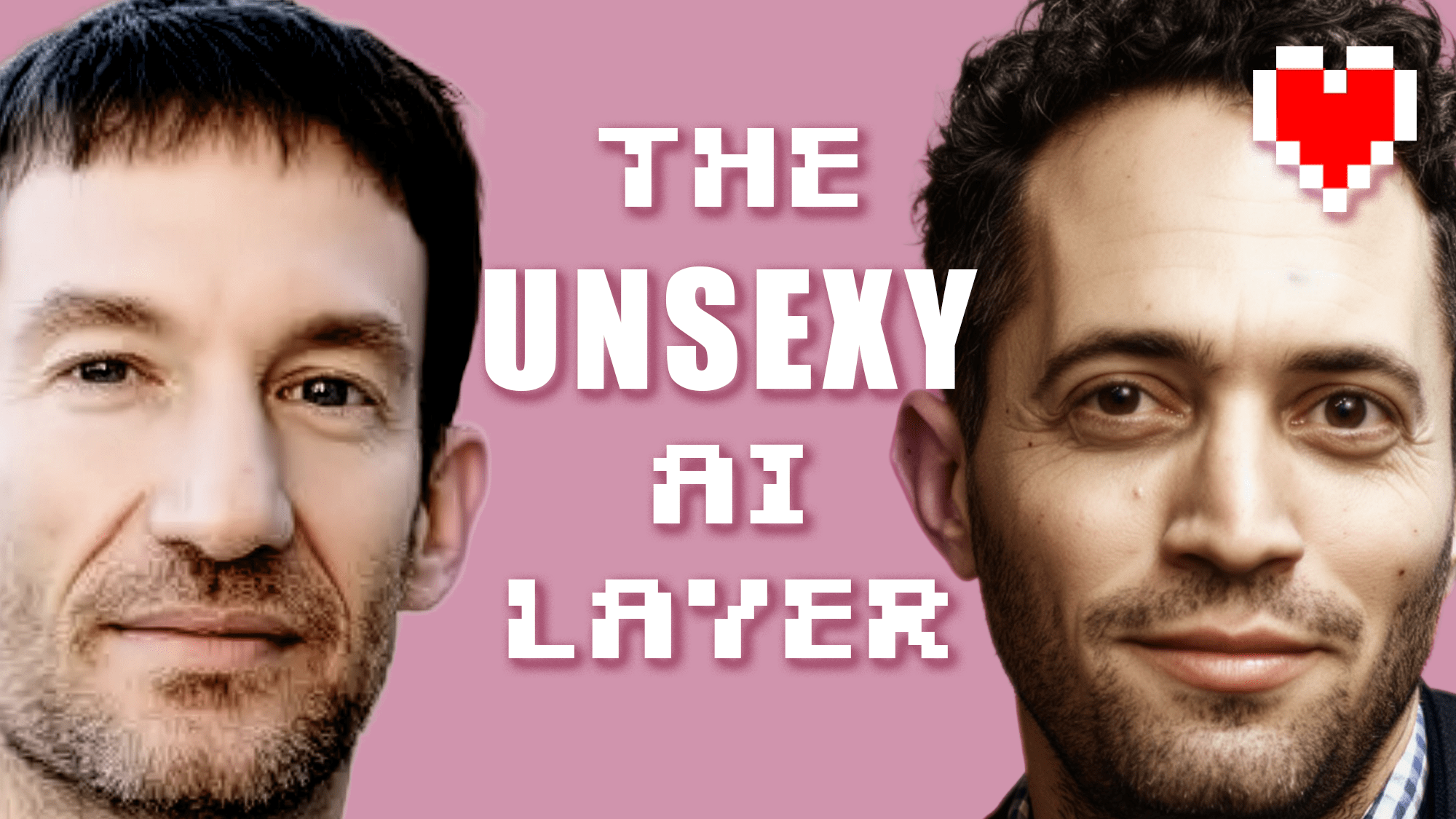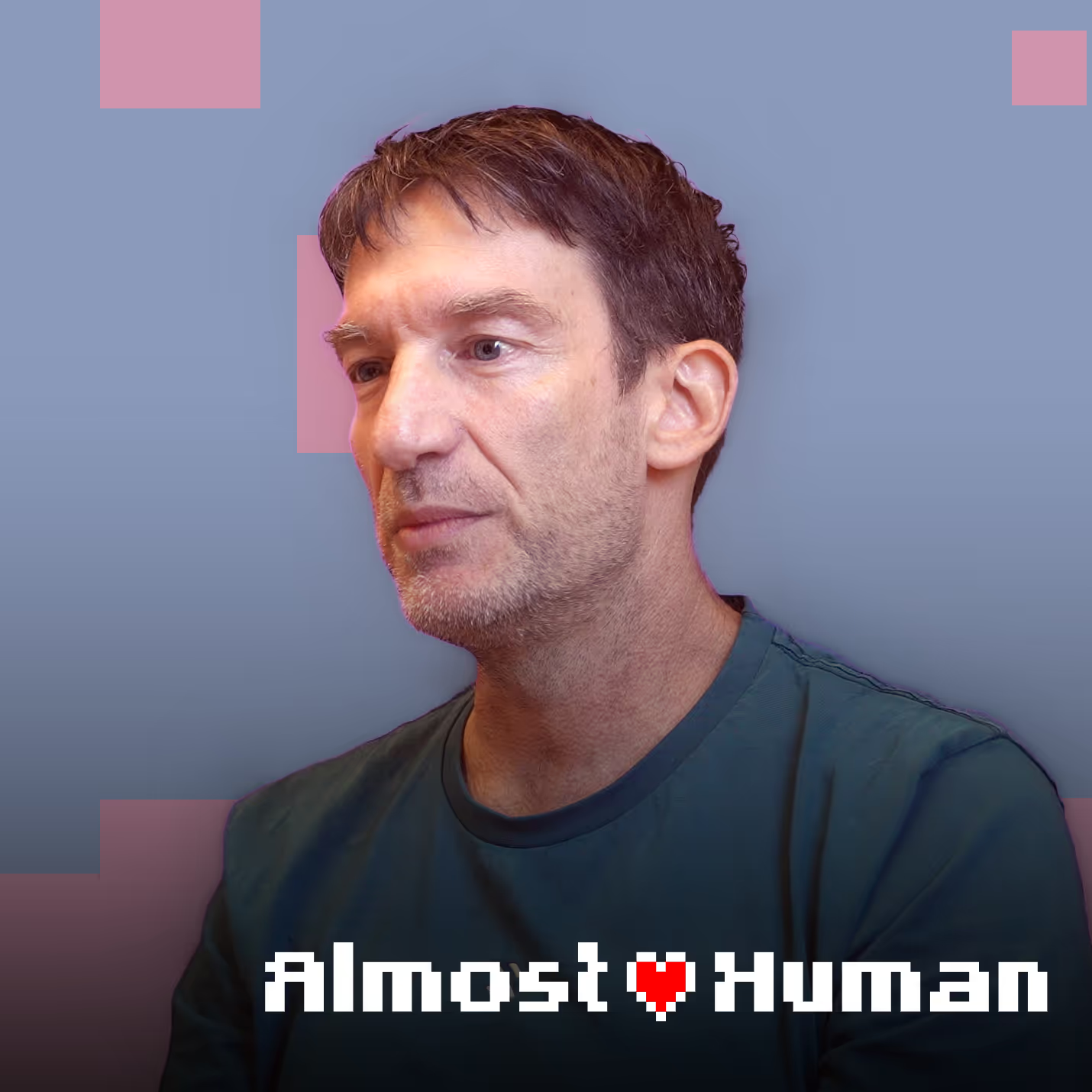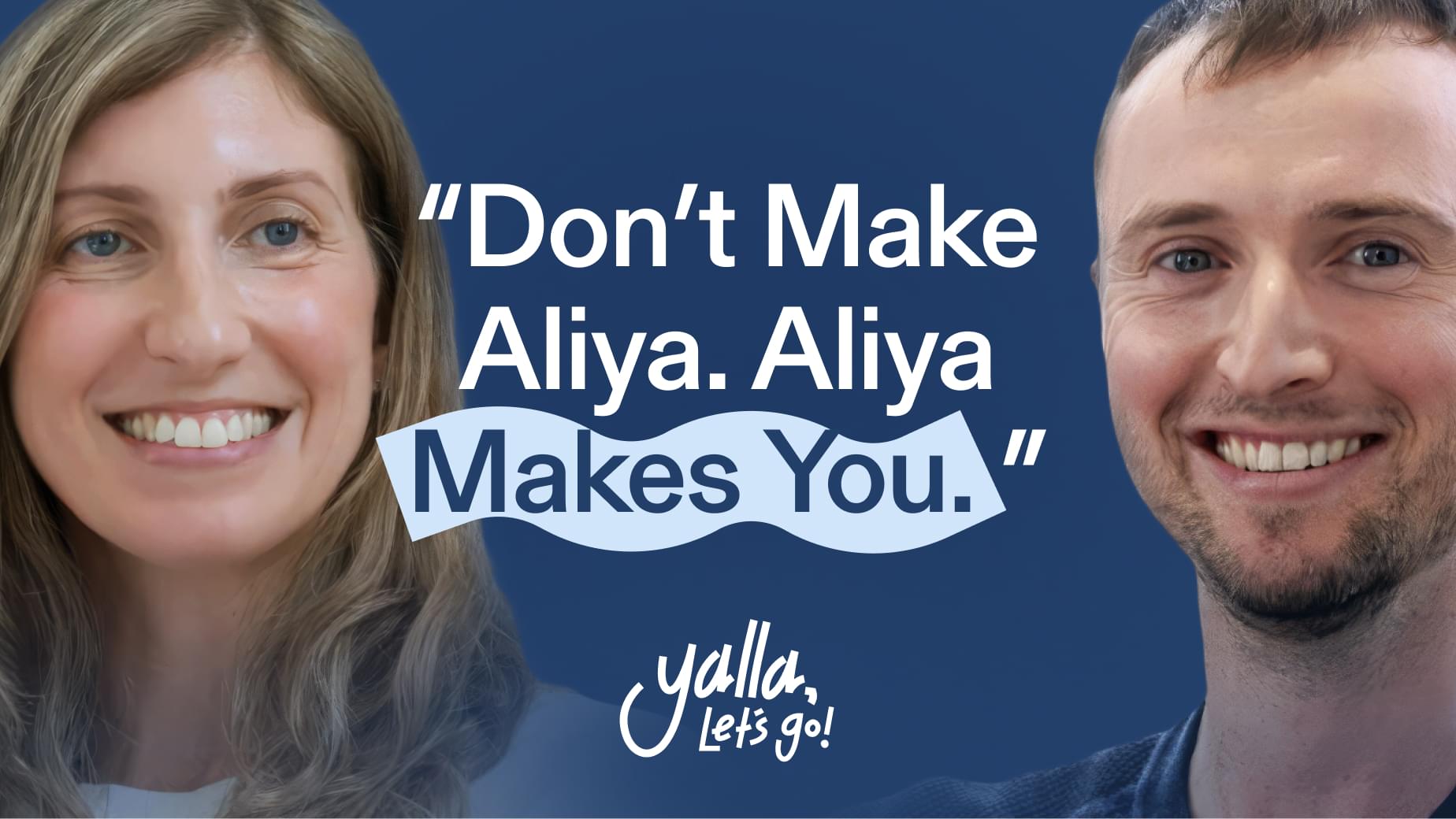David Fialkow
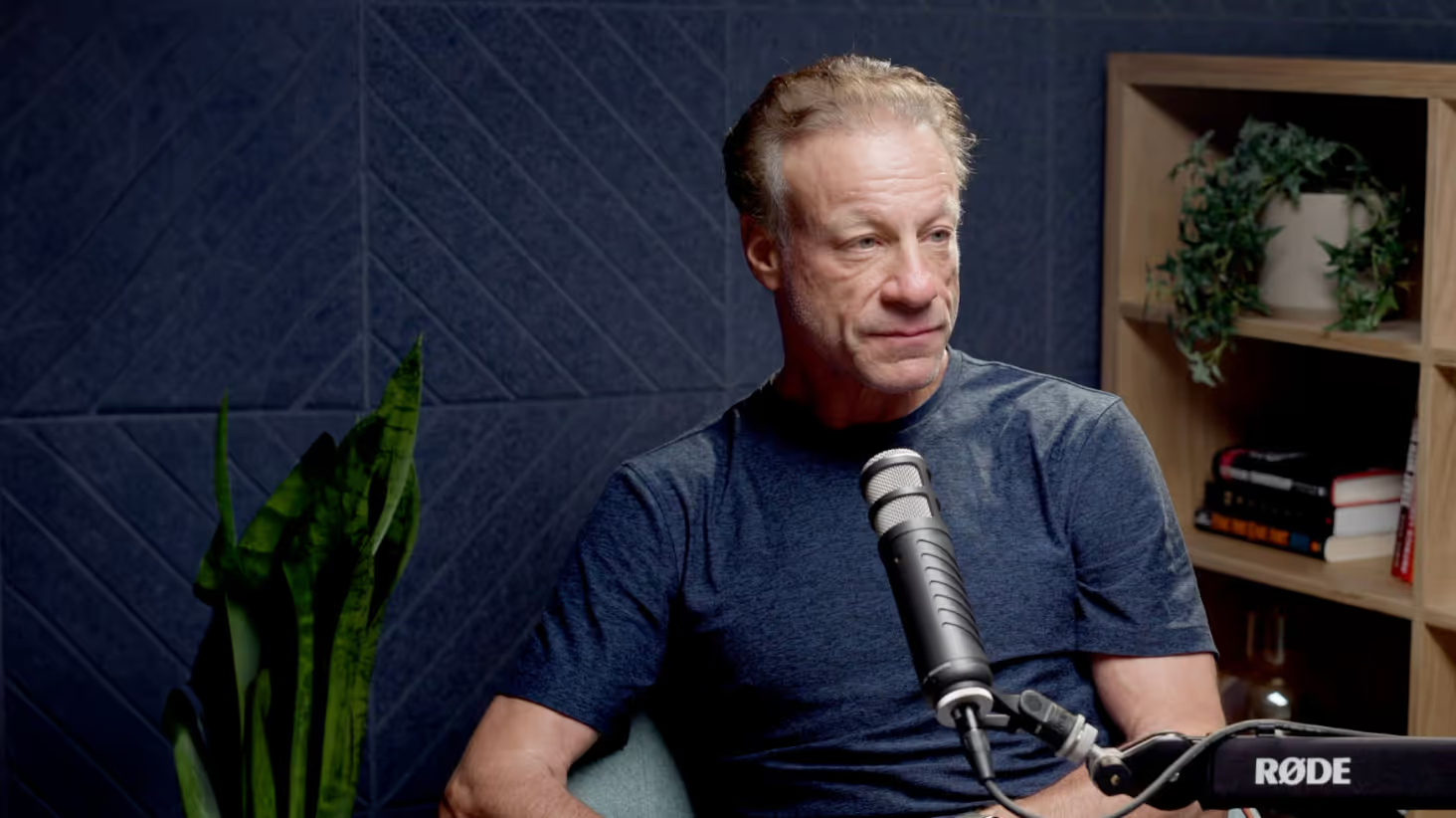


How can values create value? On this podcast, Michael Eisenberg talks with business leaders and venture capitalists to explore the values and purpose behind their businesses, the impact technology can have on humanity, and the humanity behind digitization.
David Fialkow



How can values create value? On this podcast, Michael Eisenberg talks with business leaders and venture capitalists to explore the values and purpose behind their businesses, the impact technology can have on humanity, and the humanity behind digitization.
David Fialkow



How can values create value? On this podcast, Michael Eisenberg talks with business leaders and venture capitalists to explore the values and purpose behind their businesses, the impact technology can have on humanity, and the humanity behind digitization.
David Fialkow
David Fialkow
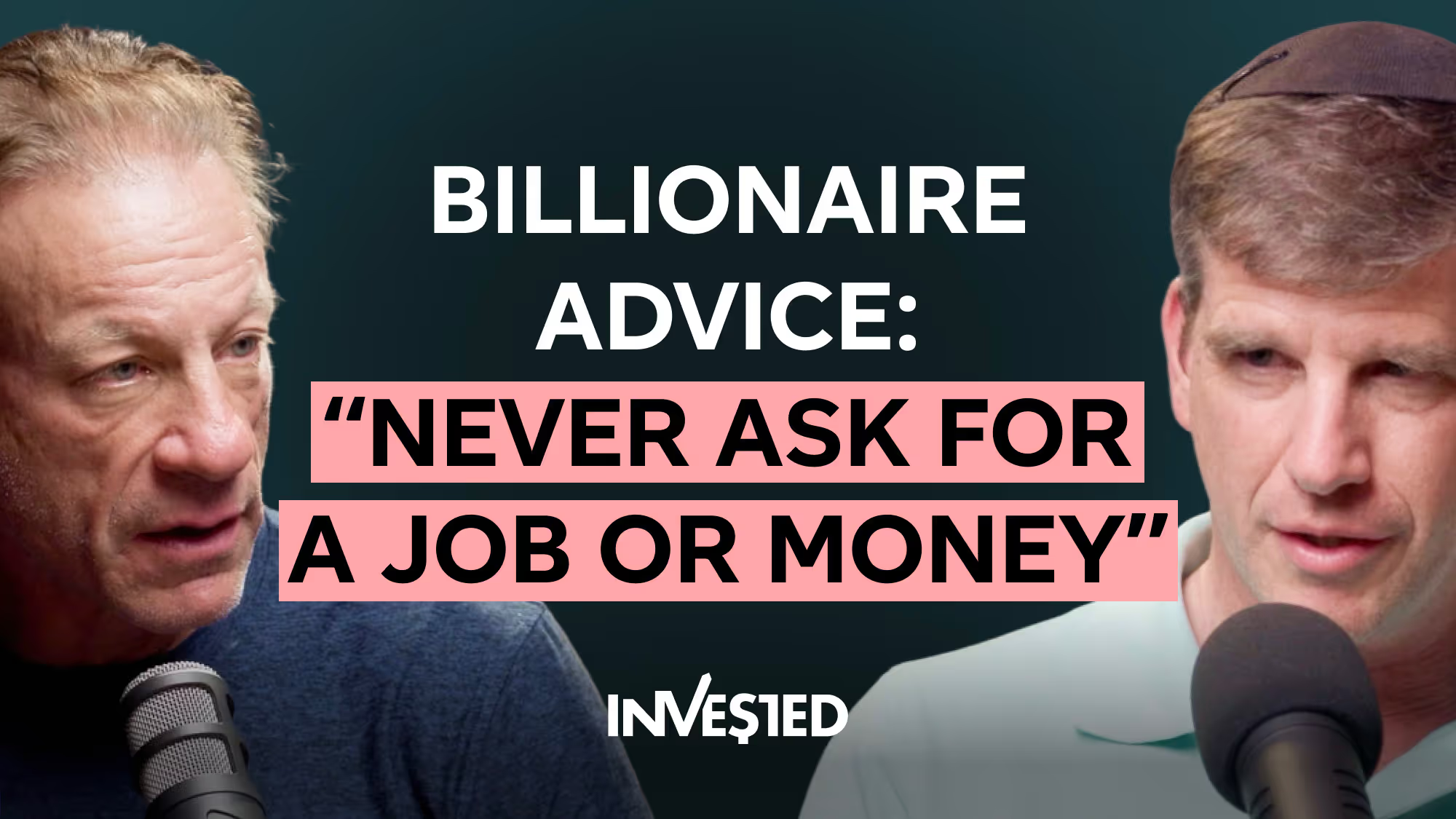
David Fialkow
David Fialkow
- 00:00 Intro
- 02:30 College at Colgate and an ESL Shock
- 04:19 Discovering Storytelling and Filmmaking
- 09:06 Founding Last Minute Travel with Joel Cutler
- 11:32 Duty-Free Cruise Business and Sale to LVMH
- 13:55 How to Win Mentors: Relevance, Time & Opinions
- 15:53 Storytelling and “Hot Buttons” in Pitching
- 18:18 Crohn’s, Children’s Hospital Gift & the Ironman Bet
- 21:40 Why David Started General Catalyst
- 23:23 “Shots on Goal” and the VC Mindset
- 25:19 Starting Fund I and Raising Capital
- 28:11 Succession Planning
- 33:01 Ken Chenault Joins General Catalyst
- 39:28 Filmmaking with his wife Nina Fialkow
- 41:28 The Vow and Bringing Down NXIVM
- 46:16 Icarus: Pivot to Russian Doping Scandal
- 48:45 Navalny, Sugarcane, and Storytelling as Justice
- 57:00 Raising $12M through Film Screenings
- 59:26 Pan-Mass Challenge
- 01:01:27 Dana-Farber’s Impact on Oncology Drugs
- 01:02:21 On Luck, Teams, and Keeping Ego in Check
- 01:03:50 Why Israel: Mission, Resilience, and Tech Future
On this episode of Invested, Michael hosts David Fialkow, co-founder and Managing Director of General Catalyst, one of the world’s leading venture capital firms managing over $40 billion. From early investments in companies like Airbnb, Stripe, and Warby Parker, to scaling global category leaders, General Catalyst has consistently backed transformative founders and ideas. David’s own career bridges entrepreneurship, film, and philanthropy. Before co-founding General Catalyst, he built and sold several companies across travel, specialty retail, and payments/financial services. Beyond investing, he’s an Academy Award–winning documentary producer, with credits including Navalny and Icarus, which exposed Russia’s state-sponsored doping scandal. David is also deeply involved in civic and philanthropic initiatives. With a unique blend of business vision, creative storytelling, and social impact, David brings a rare perspective on how capital can be a force for both innovation and positive change.
Please rate this episode 5 stars wherever you stream your podcasts!
Michael Eisenberg (00:00.13)
David Fialko joined me today and I think you're going to want to listen to this podcast from beginning to end. You'll learn of the people who empowered him to be successful, the people that he humbly empowers to be successful, an incredible journey of storytelling in filmmaking, in venture capital, and an incredible job at not just telling the stories, but taking action to make a change in our world. You don't want to miss this episode. Welcome back to another episode of Invested. I am thrilled.
to have my friend David Fialko here. Welcome, David. Thank you, it's a real honor to be here. David is the co-founder and a general partner at General Catalyst, the investment firm, but we're gonna talk a lot way beyond venture capital. I have been wanting to do this podcast since David and I hiked up the sand dunes of Abu Dhabi together. That was fun. It was fun, it's been a year and a half to make this happen, taking some time, but I'm so glad you're here, welcome. It's a real honor, thank you. All right, David.
We're on a podcast, there's Spotify, there's Apple Podcasts, and there's YouTube. But on the way in here, you told me that your mom wouldn't be happy with the YouTube one. Why is that? Well, my mother, at a very young age, told me that I had a face for radio. And now I'm living out her dreams. So being a filmmaker where I'm behind the camera and now here where I'm in front of a microphone, I'm very well suited. Thanks for having me.
I've asked this question before, but I want to start with it again. You went to college. Was it good experience? It was a fabulous experience. It was short lived. It was longer than I thought, but shorter than I would have liked to have been. I had this dream of going to college and having a normal experience. And then in my first kind of couple days of school,
the dean said, you know there was a condition by which we accepted you to college and I thought it was around my athletics and he said no and then I thought it was around working in the cafeteria and he said no, both those are fine, it's that you have to take English as a second language. And I said, I'm sure you've made a mistake, I grew up in Boston and he said, I know you did but to be accepted at a school like this and have SAT scores like yours,
Michael Eisenberg (02:22.602)
must mean you have some challenges and you have to take English as a second language. And I got to admit that was a bit of a shock to the system and my first couple days of going to that class, it made me realize, first of how lucky it was to be American, but also I wish I had paid better attention in English class when I was in high school. What sport did you play? I played hockey. Ice hockey? Ice hockey, yes. I know we're here in Israel. Which actually is decent hockey. You know, getting better. You now have a rink in Tel Aviv. You got a lot of Russian.
immigrant people that are playing here. We even have an Israeli ice hockey team. You can play for it someday. I would love to. Bad knees and all. would love it. You don't still skate, you? I do if I can go slowly. Okay. When you kind of entered college, where'd you go to college? I went to Colgate. What did you want to do? I wanted to play sports and what I was really excited was to be on my own. Just to be The idea of being free. I didn't in those days have a lot of academic
curiosity or interest, those will come later. But it became extremely clear to me once I got into school and went in and out of several different programs that the thing I really wanted to do is be a storyteller. And I always felt that the, although I wouldn't have called it an art in those days, I would have called it a necessity. The ability to be able to communicate in a way to get people to...
want to follow you or believe in you and to understand ideas that they otherwise wouldn't have thought of is a beautiful art. And it'd be something that I was spending the balance of my life doing. Because when I looked at starting a business or everything, it was all about getting people aligned around a common theme or interest. And so much of this was around the leadership, around storytelling. And I was very blessed that when I went to school, I was able to study filmmaking.
which at the time wasn't a very big area, but it was a place that think Colgate thought that they could park me and be safe, I wouldn't blow up. And it actually ended up being a great blessing for me. And what made you think you could be a good storyteller? Because I didn't read or write very well. And so my opportunities were I could be a sculptor or a filmmaker. And sculptors are dirty. Who wants to spend their whole day wearing overalls, throwing mud at, against the wall? But filmmaking,
Michael Eisenberg (04:42.722)
was something totally emancipating for me. It would allow me to like go right brain curiosity, pick things that were really interesting, learn as much as I can and tell those stories. And at the time, what I had no idea of is that it would become something that would become a very dominant theme in my life. know, when I started out my career in business, I really started out as a driver for Tom Lee, the iconic
a bio guy who I met on Martha's Inyard. And at the time I was going to law school and he said, why are you going to law school? I said, because I didn't, I really wanted to get an education that I didn't get in college. And he gave me this opportunity to sit in his car and drive him around and pick him up and just talk to me. And what I realized just even in those days, it was the anecdotes, was the stories, it was the articulation of ideas, it was how people were doing things. So at a very young age, I sort of gravitated towards something
that very few people have the opportunity to do, which is listen to people and hear the way in which they did and why they did things. And that's something you just don't learn in school. How did guy like you, who thinks he's sort of second language, take interest in second language and at Colgate get to Martha's Vineyard? On my bicycle. I was literally riding my bicycle one day and I stopped to get some water and there was a guy watering his flowers and I asked if I could borrow some water to put in my water bottle.
And it ended up being that we began this great conversation. And he said, why are you going to law school? Why don't you come work for me? Unbelievable. So I said, what can I do for you? And he said, well, you can be my driver. I was expecting an analyst job, but I didn't have any experience. So I took what I could get, and then I started there, and I gained his confidence. We became really good friends, and then eventually I worked at his firm one day, which was magical. And how did you start your career? Because it didn't start in venture capital. We'll come to that No.
I worked for Tom and without knowing it at the time, the value of mentorship. And Tom was an amazing mentor. He took the time to explain why and how he was doing things and how he was handling people. And what I learned from Tom was something that would be a lifelong lesson, which is how you treat people. And I worked him for a couple of years and then I realized it would be much more fun to build a company and sell to him than be with him and buy other people's companies.
Michael Eisenberg (07:10.136)
So our dear friend, Joel Cutler, and I, who I haven't known that long, just since kindergarten, Joel and I, Joel was working for his dad, I was working for Tom, and Joel had this really brilliant idea, which was people don't really care where they go on vacation as long as they go somewhere warm, and if it's half-priced, they're even less concerned where they go. So Joel came up with this idea called last minute travel, and he said, you wanna do with me? I went, hell yeah.
And he said, we'll be able to travel, we'll go have fun. And it was right. And Joel was a genius at the product. Joel has always been somebody who was clairvoyant. He saw the future, and what he saw was that people were gonna use their leisure time in a way that they hadn't, this is 30 years ago, 35 years ago, where people really wanted to take holidays, but they didn't want to pay full price. So didn't matter whether they went to Aruba or Cancun.
or the Bahamas or Bermuda, they just wanted to go away somewhere. So we started this business in my basement, and then we moved to over a bakery, and the whole idea was come see us three days before you want to go away. And if you don't care where you go, you can go for half price. And we didn't know what we were doing. We had absolutely no idea. And we always thought that if we grew faster every quarter, we'd always have more money. So we never managed money.
And then we ran out of money and that led us to make some decisions on how to run a business. one of the great things about Joel is that we always had this relationship, we were really honest with each other. We both admitted we didn't know what we were doing. So we brought a bunch of mentors in to help us and really scale the business. And then luckily we sold it. And we sold it at the perfect time because the internet, it just started to take over the travel industry.
and we got kind of an early internet multiple for a very mediocre business. It was a very cool business. And I guess at the time we sold it, we were the largest seller of tours and cruises in the United States. What year was that? We sold it in 1995. 1995, right at the Right at the cost where people thought every business should be on the internet. And then luck would play a little bit of a role. We got a phone call from some friends of ours at Berkshire Partners.
David Fialkow (09:23.214)
1905.
Michael Eisenberg (09:37.336)
great guy who become a great mentor to us named Brad Bloom. And Brad said that they had an opportunity to buy duty-free stores on cruise ships. And they said, why us? Why Joel and me? Well, you guys know something about cruise ships. We've got nothing about retail. We bought this business and then again, there's a common theme, Michael, in our lives, luck would once again play a big role. We had a competitor.
that was owned by Swiss Air, and Swiss Air had an unfortunate tragedy on one of their planes, and they wanted to get rid of their jurisdiction inside the United States, so they sold us their duty-free stores on cruise ships for basically no money, and we ended up having a monopoly. We couldn't understand why LVMH, who was the largest player in the game, wasn't in this business. What we didn't know,
is that LVMH had crossed their wires with regulators and had to stay out of the business for a while. So once again, we went back to the playbook. Who are the best mentors in the world? Because Joel and I didn't know anything about selling things other than travel, but selling actual objects on cruise ships. So we went to two very dear friends of ours, Steve Karp and Steve Fishman, who were great.
mall owners and real estate guys, and Mickey Drexler. And Mickey at the time was the chairman and CEO of The Gap. He was the number one merchant in the world. And we asked the three of them to join us in this mission. And then we brought in Len Schlesinger from Harvard Business School. And the four of them formed a board and a core group of mentors. And we built this business overnight into a real powerhouse. And then in 2000,
We sold the Telvium H. There's a real theme of yours is seeking out the mentor, right? Tom Lee and then this crew. If you're talking to a 21, 22 year old budding entrepreneur of any kind today, how do they go seek out these mentors? How do they get to them? How do they convince them? How do they persuade them? How do they nurture the relationship? I think that there's one way you do it. If you have no relationship,
Michael Eisenberg (11:58.87)
and you don't have any, I wouldn't call it leverage, but have any in on it, it's create relevancy. If I want to get your time, Michael, I'm gonna try to appeal to your sense of how doing something with me and mentoring me is gonna improve and increase your relevance. Because no matter who you are, we all wanna help young people, one. Number two, we wanna learn about something else, two. And number three, we wanna be known as a person
that in somebody's career, we're the go-to person to help them. So I just reverse, we just reverse engineered that. And going to people my entire life and saying, hey, I don't understand this and being totally honest, but you do, and wouldn't it be wonderful if I could learn from you, opens up this tremendous amount of empathy that makes people feel not only the desire to want to be part of what you're doing, but it can increase their relevancy as well. And it works.
And people are just willing? People are willing because they want to be in the game. Cold call them? Get introduction? Always better if you can get to people through a relationship. What's wrong with you? E-mailing somebody and saying, hey, you don't know me. However, I've always looked at your career and the things that you've done is extraordinarily valuable doing X, Y, and Z. And I'd do anything in the world if I could get some of your time.
However, there's nothing wrong
Michael Eisenberg (13:26.69)
This is another thing, you should always ask people for their time and opinions, never a job or money. Because time and opinion is not threatening. Most people would rather turn you down when you ask for job or money because they don't want to be in a position of disappointing and they don't want to feel like an obligation to you. But when you ask people for insight or advice, you're also appealing to their sense of their own ego.
wow, this person's asking me for insight. They're not asking me because I'm successful or rich or whatever, they're asking me because they want my opinion. And that's a very, very good way to start a relationship with them. You're a top 0.001 % storyteller. Thank you. What should, we'll come to more of that in a second, what should a young person trying to do this do to improve their storytelling so they can make that first pitch to Tom Lee or
Bill Ackman today or David Fialco? First thing you gotta think about is who the person you're pitching and what would be their hot buttons. So if somebody is really interested and focused around social justice versus maybe they wanna learn about technology or maybe it is that they wanna have an impact on the world or maybe they have an area of interest that they wanna pursue that you're the avenue or the vehicle to do it. You gotta do your homework.
because one size does not fit all for everything. So if somebody was trying to pitch me, it would be the fact that I mentioned earlier when you and I were talking, that the greatest feeling for me is other people's success. I feel like I've had an incredible opportunity to succeed at things on my own, through things that I've done. So the greatest feeling for me my entire life is seeing
our team win or other people win. To see the success that Amman has running General Catalyst after taking over from Joel and me. To see the success that founders have that we help them start their businesses. To see the success that my wife Nina has in running our documentary film business. To see other people succeed, to me, is the buzz of the time for me. And the emotional
Michael Eisenberg (15:53.006)
fulfillment that I get seeing other people be successful is amazing. So that's the way you would play me. So you just gotta figure out what that hot button is for somebody and figure it out that way. Let's go back, so you and did the second company, which also worked out pretty well. Yeah, we got lucky there. But tell me about how you got into filmmaking, and then I'm go back to the venture business afterwards. Well, this is really kind of interesting story. We sold our...
our duty-free business to LVMH. And we were in the middle of going public, and the LVMH team came and talked to us and said, Mr. Arnaud wants to buy this business. It fits our product roadmap. It'll be great, we'll sell it to you. You'll come to Paris, we'll have a great dinner. know, on the Champs-Élysées, I came home, told my wife, it's amazing we're sell our business to Bernardo Arnaud, and the four of us are gonna go celebrate in Paris.
And then like a week before the closing, they called us back and said, the deal's too small. Mr. Arnaud isn't gonna be able to make the closing. We're just gonna do it in the lawyer's office in Boston. My great success, I maybe needed to up my game a little bit. So what happened is that we- He still owes you dinner. He still owes me dinner. I want it back. He's gotten a lot richer since then. He can bring the Michelin chef to Boston.
So I realized.
David Fialkow (17:17.378)
He can bring it.
But what happened next is a really fascinating thing. Joel has Crohn's disease, inflammatory bowel disease, and I've always just marveled and been so impressed at his ability to persevere even when he's not feeling well or in pain. A lot of us complain about things and he never did, ever. And always smiles. Always smiles and is ecstatic for other people's success. But at the time we sold the duty-free business,
I really wanted to do something great for Joel, which was I wanted to build something at Children's Hospital where he had lived as a young boy with Crohn's in his honor. So Nina and I went down and we started out that it was gonna be something really big and then you realize how expensive it is to build in a hospital and we agreed to build this area at Children's Hospital in honor of Joel and we were walking back and we went by the, you're wearing a Red Sox hat.
we went by the Cactus Club in Boston and we went in there, Nina and I, for tequila and tacos. And at the time, I had to deal with Nina that I could weigh double what she weighed. And she's weighed 105 pounds her whole life. And at this point in life, could weigh 210, but I was at like 220. And there was a bunch of guys at the bar and they were giving me grief. How's that two for one going? I of course meant,
two tacos, one tequila, and they went, no, the two for one on weight. And I said, I weight 210 pounds, and they're like, there's no scale in the world that would put you at 210. So of course being a guy and having a very large ego, I got upset. I said, all right, maybe I weigh more than that, but I can do anything you ask me to do physically, anything, provided that you guys put up some money for this Crohn's Initiative that I'm doing. So this was July, and I committed
Michael Eisenberg (19:14.286)
I bet these guys a couple million bucks that I could do the Hawaiian Ironman on my birthday, which was October 18th. Which sounded like a good idea, except for I didn't know how to swim. And then Nina casually informed me that the Ironman was actually on my birthday, so now I had to double down the bet and I didn't know how to swim. So I spent the next 90 days furiously learning how to swim. My Russian swim coach,
came to Nina and said, he will drown in the boot. And if he drains in the, he'll drown in the ocean. So I had problems getting a swim instructor, but I did it. I qualified, I went to Wye, I brought a bunch of my buddies with me, of course, I needed my positive friends with me, and with Nina and my parents, and I finished the Ironman. I did not set the world record, I was actually at the bottom.
end of the finishers, but I did it, and I raised some money. So now Joel and I are sitting on the beach the next Did you finish healthy? I finished totally healthy. Totally healthy. And happy. Really happy. And hungry. So the next day, Joel and I are on the beach, and Joel said, hey, what do want to do next? We sold the duty-free business, let's do something together that'd be great. I said, I had this life dream, I want to start a venture firm. And Joel said, small problem.
Thanks.
Michael Eisenberg (20:41.102)
We know nothing about technology. You could say maybe 25 years later, still true, but hopefully we've learned a little bit. Number one, we know nothing about investing. We know nothing about technology. And we've never had investors. So you think about starting a venture firm without any tech skill, investment skill, or fundraising skill. And I said to Joel, we'll do it our way. We'll figure it out. And one of the things I love about Joel is Joel looked at me and goes,
I know we will. And the early part of it was rough. People would go like, you're doing what? And it was kind of shocking to people because we didn't have that as a background. But Michael, the reason why we did it is we realized the same dream that we had, which was we felt that investors did not have empathy for founders. And it was about investing in founders, not having empathy and helping them build that business.
And what we wanted to do is be on that journey with founders, helping them all along the way. As you think about what it's like to be a founder, which you and I have been, and you go home, sometimes people around you don't understand that the burden of the world is on you to perform. Your friends don't understand because they're not dealing with it the same way. there's nobody around that you can sit down and say, how do I do this? And you've taken responsibility
to help a lot of people and you don't really know what you're doing yourself, so how can you help others? And we wanted to be that go-to person. We knew what it was like to be that lonely. We knew what it was like to be that unsure of ourselves. And Joel and I agreed if we could be the best mentor, the most empathetic listeners and helpers for founders, regardless of whether we made money or not, we'd have a blast.
The second thing is I grew up as a hockey player. And unlike any other sport, hockey does not have the following metric, which is you said to me, are you a good baseball player? I actually suck, but say I bat 250. If you said, are you a good basketball player? I'd say, well, I was three for nine last night. If you said, am I a good golfer? You'd say, I'm a 10 handicap or whatever. Hockey.
Michael Eisenberg (23:08.204)
If you said to me, how'd you play last night? And I said, I scored two goals. Nobody asks how many shots on goal I took.
To join us.
I surmised that if we could raise capital efficiently, we would have more shots on goal. We could actually build a venture firm and be wrong. But nobody cares about how much you're You and I both know that. Nobody talks about this deal or that deal. I'm looking behind you at the wall of your successful companies.
a lot.
on.
David Fialkow (23:31.566)
to be.
There could be ten walls over
They're the ones that didn't work out. Nobody gives a shit about those. What we care about is the successful ones. And that's what Joel and I focused around. So we said, we empathetic toward founders, if we can understand their journey, if we can them build their businesses, both personally and professionally, we would have a blast and we'd be able to maybe recreate the way founders build companies. And that's the original idea. It was never about making money. It was never about our
can be.
David Fialkow (23:49.742)
If we can help.
Michael Eisenberg (24:04.674)
thoughts about what products and services and companies should get built. didn't have to do that. But what we knew is if we tracked really talented, really motivated founders to be on their team, we could have a great time. What year did you start General Catalyst? We closed our fund on September 10th, 2001. That was a very, and our first fund was our own money.
We weren't clairvoyant in
You could've
Michael Eisenberg (24:32.43)
And the reason is nobody was gonna give us money. Our first one was basically $70 million, 50 from Joel and me, and 20 from friends who I think reluctantly at the time wanted to be on the journey. What we got right was that you needed more money. What we didn't get right is a couple of things. Fast moving water slows down, number one.
Number two, although your friends want you to succeed, very often other venture capitalists look to their other venture friends as a way to pump up their rounds versus including you in their winners. And then the third thing that we really got wrong was how long it takes to be successful. Forget about words like a J-curve. When you're investing in early stage businesses, if you want instant gratification, it's hard to get, which is why fundraising
became so important. Because fundraising is instant. You walk in, I remember the first time we went down and we met with David Swenson and his team from Yale. And we had never raised money before. The only time we had ever asked anybody for money was for charitable donations. Cure Crohn's disease. Cure Crohn's But at least Swenson didn't make you do an Iron Man. Right. And this was right after that we went down to see David Swenson.
And David and his partners had committed to us $20 million in our first fund. We get in the car, I happen have this beatable convertible. We get in the car and we started ripping down the road and I went, that's amazing. We just got the greatest contribution donation of our lives. And Joel turned to me and goes, no, they actually want their money back with a return. So we had to change the way we looked at things, but what really worked well,
was us understanding that this was a long relationship business. Long relationship between the two of us, long relationship with founders, and long relationships with LPE. And it's really bonus. I wanna fast forward if we're talking about the venture fund now to, you guys have, I think, a pretty remarkable job where most venture funds fail, which is generational transition. You're still there as a general partner. Joel is still on boards, including with me.
Michael Eisenberg (26:54.454)
At Empathy, apropos Empathy, at Empathy.com, Ron Gur's company. But he's more or less moved on. And Hamant is running the firm today. How did you pull this off? And really take us through it, because there's a Ken Shanult era. Let's begin with confidence, which is that we thought that on our team, we had a handful of people, in particular Hamant, which were
once in a generation leaders. And what happens is, I'll go deep on this for a second, if you and I based our identity on being the founder of Aleth or the founder of General Catalyst or perish the thought this was called Michael's capital or David's capital, there's no way that we would ever be able to couple from running a firm. Instead what we realized is kind of like the ad for the
You don't own it, you merely run it for the next generation. And Joe and I always felt, always felt, that we would have our time and then it would be time for others to be able to lead for three reasons. Number one, what I said a few minutes ago, the greatest feeling is to see other people successful in part because of what we've created. One of the great things about parenting and
You've learned being a grandparent, I look forward to that day. Hello, Olivia. My daughter. But the greatest joy, and what we realized with Hamad was in 2012, we made the decision thanks to one of my mentors named Jim Schwartz, who was the founder of Excel. We should just stop for a second. Jim Schwartz is really one of the godfathers of the venture capital industry. Doesn't, I think, get enough credit.
for how much he contributed and work he did at Accel and just an incredible, he was kind to me at the beginning of my career too. So I met him, we did a deal with Accel called BB &N that we bought a company and Jim Breyer was the guy we did it with and Jim said you should meet my partner, Jim Schwartz, who lived on the Vineyard, which is where I live. And so I just spent some time with Jim and then Jim made this kind of epiphany. He's a very black and white guy.
Michael Eisenberg (29:19.394)
And he turned to me and he goes, I'm to tell you something, it's up to you what you do with this, but you will be out of business. As good a firm as General Caldwell seems to be in the first five years of your life, seven years of your life, you will be out of business, extinct, dead, unless you move to San Francisco. There is not enough business in Boston or New York. And Joel S. Cronz and a close family wasn't going to leave Boston.
I loved living in Boston and I didn't want to leave. And we had this really talented young guy, Hamman. And this was early on. And Joel and I sat down with Hamman and said, listen, you're going to move to San Francisco. You move your family out there, including your parents. And you're going to run San Francisco as if it's its own firm. If you have to call back every hour to get permission to do things, we're dead. Now part of it is, I asked a whole bunch of firms that had gone east
to West, and very few of them, really other than Greylock, had succeeded. And when we figured out why they did, it's that the mothership, AKA Boston, controlled the purse strings. She'd have these really smart young people running around California, and it's six o'clock at night on a Friday night in San Francisco, and they want to sign a term sheet, and they're calling back to get permission at nine o'clock at night, and nobody's answering at the mothership.
because they're after two drinks in Boston, one of these nice clubs. Or they don't have any idea, they can't believe that an early stage round is not 2.2 million pre. And we went to them and we said, you're gonna go out, you're gonna fuck your team, and you're gonna do it, and we're gonna be supportive of you, and you are gonna begin to build the firm out there, no strings attached. And the quid pro quo is, do it without any fear of failure, without any reservations, you're a really smart guy, and we have
Pick.
Michael Eisenberg (31:15.288)
total confidence in you and you will take over the firm one day. So he may have taken it over operationally in 2018, seven years ago, but seven years before that, we empowered him to say, go do it and feel the power of making your own decision. And we always supported him and he did a great job. We all make mistakes, but we were there for him.
What happens in our business, Michael, as you know, is founders stick around too long because of their own relevancy. It's not having to do with their team. It's they love what they're doing and they love the accoutrements and the firepower they get by leading a firm. And they don't pay attention to the fact that they're actually, you know, raining on somebody else's parade and ability to lead. So we made these decisions very early on.
And I think that gave Hamant the courage to be a better investor and courage to be a better team builder. We could have never anticipated that he would be the leader that he is today, which is extraordinary. The Ken Shinal thing was a little bit different. Joel Hamant and I had known Ken for a long time. And Joel's my case even before General Catalyst. We had started a business called You Promise and Ken was involved in it.
As Ken started to move toward his own retirement from American Express, we spent a lot of time three or four years before that having him get to know our team and our portfolio. One thing we realized is yes, this guy runs a hundred billion dollar business, but he loved putting on pair of jeans and sneakers and hanging out with young founders. And what founders wanted was how to scale.
No more.
David Fialkow (33:08.929)
from Ken?
Not what product, not what person hire necessarily. How do you scale? He had great experience in doing this and he was extremely relevant. So when it came time in 2018 where he was going to retire, he could have done anything. And we appealed to his sense of relevancy and he came in as an equal partner and he's done an extraordinary job in many ways. And he's been the perfect partner for Hamad.
over the last seven or eight years. They very different skill sets. We just got blessed that that worked out. How'd you handle the financial transition? I know there was a transaction with Goldman Sachs at some point into I think the GP or something like that. We did, this is just you and I talking here. This is totally private conversation. We did a deal with Goldman seven years ago for the right reason and it had some ramification.
Ha ha ha ha.
Michael Eisenberg (34:11.342)
Okay, and this is the right reason.
Up until that point, so that would have been say 16 years into our partnerships, Joel and I had funded all the GP commit, loan money to the GPs that couldn't afford it. The J curve in venture capital did not produce liquidity for our younger partners in a way. So we found ourselves funding all this co-invest. And as we started to scale up, it became clear to us we couldn't continue to do that.
So we did a deal that nobody else had ever done in selling a secondary, which is we found a partner, Goldman Sachs, who was willing to buy a piece of the firm, but instead of us taking the money out, we put it on the balance sheet of our management company and use that as an account for our partners to be able to do their co-investment without feeling obligated to Joel and me. They were actually borrowing the money from the firm. So again, Joel and I got no liquidity out of it.
Instead, it gave the firm the capability to be able to continue to co-invest. The reason I want to highlight this is I think it's underappreciated how hard it is for younger people joining an established firm with senior partners to kind of find their footing. And what you enabled through this is them not to be beholden to you, so that frees them up a little more and find their own footing and be a part of the firm. I owe money to the firm, I owe money to Joel and David.
Well, one of the, right, and we didn't want them to feel like they were borrowing the money or obligated. The way we set it up is, this is your money, it's no strings attached, in terms of it is non-recourse. If the firm can't, if the deals fail or the funds fail, you don't have to pay it back. But it gave them the sense that they were co-investing alongside us, and we did it in a way that did not materially financially burden the firm. And what it allowed people, as we know, little nuance here.
Michael Eisenberg (36:07.896)
GPs are the last ones to get paid. LPs are the first ones to get paid. It's extremely important if you can to have your GPs, aka your partners, the LPs, because they get paid out of the deal proceeds, not just the fund proceeds. And I think that really helped accelerate the wealth creation and the wealth security of our younger partner. So that's a deal that we're very proud of doing, and it worked out really well. And it ended up being, at the time, we were very small firm.
So it ended up being a very good deal for Goldman and we just bought him back this year. I want to switch gears to your film career because for those who don't know, David is a decorated and has won several awards, Academy Awards for the documentaries you produced. How did you, I know you want to be a storyteller since the time you were in college and you majored in film and how'd you get into filmmaking? So the constant in my career is find people who are both smarter,
and more capable than you. The greatest dream in the world is having your own dreams and aspirations and allowing other people to share in that. And when you do it in a way where you really do share that limelight and capabilities, you can have tremendous people do it. For example, General Catalyst would not be the firm it was today, it is today, without the leadership and success of Hamman.
Well.
I always wanted to be a doc filmmaker. When I got out of college, I tried, but I couldn't make any money and I didn't have any money. So I had to go get a job, hence being a driver for Mr. Lee. And about 15 years ago, Nina and I, my wife Nina and I realized that there was a limit to the impact our philanthropy could have. Just simply dollars have a limit. But.
David Fialkow (37:50.349)
Hehehe.
Michael Eisenberg (38:06.988)
If we could tell stories about truth to power and articulate to people things that they should know about, the return on investment is infinite. And like the case of Hamant, Nina is one of the greatest filmmakers of all time. She was a PBS producer, super successful. And Nina and I came up with this idea of telling stories that would be really hard to tell.
Hard not only because they're hard to finance because they'd be very often truth to power, hard to tell because they'd need really good filmmakers to do it. And Nina's brilliant at it and she proposed that we do it together and it was another chapter of my life where I got lucky being able to surround myself with incredibly brilliant and competent people and be part of something magical. You married up. I married up. Yeah.
Nina's idea was let's tell stories Nina's idea always was If you asked her what made a great film She'd say three things number one. It's gotta be really well made from an art point of view from a from a from a photography and a cinematography point of view number one Not a guarantee those got to be good the second
is we want people to learn something that they didn't know. They leave the theater and they go, howly cow, I did not know. And then the third thing, which really motivated both of us, was it would lead people who saw the film toward an activity that would create a more just and true world. Give me an example.
One of-
Michael Eisenberg (39:59.022)
The favorite films, series that we made is one that Nina did called The Vow, which is that we had heard this story from this great filmmaker, this woman, Jahan, that there was a cult in upstate New York called NXIVM. Where'd you meet Jahan? I think there's a story to that. Where'd you meet her? Well, we knew her, but we really ran into her on the street, snowing at Sundance in Deer Valley, Park City.
I was with my daughter and Nina, and Jahan came up to us and said, are you familiar with this cult in upstate New York called NXIVM?
I said, no, I've heard of the.
stomach.
medicine, but tell us about it. Said, well, it's this cult that takes really successful women and puts them together into a self-help group up in Lake George, is beautiful part of upstate New York. We paddle board and we have really good, you know, sessions, you know, exploring, you know, the meaning of life, et cetera. And we all share intimacies. And then at the end of this, it's taught by this guy named Keith Ranieri.
Michael Eisenberg (41:14.082)
who's a very articulate, incredibly charismatic leader. And then at the end of the session, Keith would say to one or two of the women, would you like to stay and get special leadership training? And of course his women would say yes. And he would then, for 48 hours, deprive them of food and sleep. And regardless of how strong you are, without food and sleep for
24 hours or 48 hours you break people down. Whereas he'd prey on them sexually, ending with the most horrific act of disgust, he would brand them in their private.
And, know, Jahan is telling us his story and showed us some of the video. And her, Jahan as a director and Nina as a producer, decided to make a seven part TV series called The Vow. And then HBO liked it so much they bought a second season of it. And the story was really eye opening about how easy it is to convince.
wealthy, smart women and men and families to support what is a cult because they believe in the higher good of what this guy was saying versus the reality of the situation. But what really became powerful was once we told the story, we got a lot of people to come out and turn evidence against this real villain.
this real predator, Keith Renieri, culminating with Nina spending 21 days in a Brooklyn courthouse, you know, just looking at this guy's eyes for 21 days, and we end up getting him convicted for 99 years of a life sentence, so that this predator will never ever be able to do this to another woman. So I look at that and I go, that to me is a great
Michael Eisenberg (43:25.71)
articulation of storytelling. And that's a harsh one, but for that film, he would never have gotten the justice. And these women who were victimized would have never been able to articulate what happened and move on in their lives. I think this comes back to the first point you were making, which I think ties together your journey, the entrepreneurs you work with, and the story of the documentary, which is that storytelling is this incredibly powerful
because we're storytellers, it's how we connect to people, to bring people along. And people who have traumas, or people who have stories that need to get out, become motivated because somebody stood up for them and actually told a story that they cannot And they don't feel alone anymore. Right, they don't feel alone anymore. The other piece, which is similar to venture capitalism, in 2017, we were approached by guy named Brian Fogle, a brilliant filmmaker, who wanted to make a film about
how Lance Armstrong beat the doping laws to win the de France for seven years and never get caught. For those who don't know, Lance Armstrong is a famous cyclist, there's a great book about him, who won the Tour de France and was accused of doping, but somehow got around the doping tests. He won seven Tour de France's and he beat the doping all the time. So Brian Fogel, a brilliant director, came to us
came to Jim Schwartz and Dan Cogan and I and said, hey, I want to Lance's drug protocol and see if I can get away with it. And he would do it while doing the haute route, H-A-U-T-E route, which are the seven biggest climbs of the Tour de France. And what happened is the story failed because he did worse doping than undoping.
And so we had a failed film. And I was in Switzerland at the time this came together, as with my son. And Julian and Brian and I were having dinner on the roof of some hotel, and Julian's great line was, half the stuff my dad does in venture capital fails. It's all about the pivot. And we got Brian out of the fetal position to say, if you could do anything in the world without fear of failure, what would you do?
Michael Eisenberg (45:54.23)
And Brian said, I will go to Russia and I'll figure out how the Russians beat the doping system. And in doing so, he discovered a guy named Gregory Rachankov who ran the Russian doping protocol. We smuggled Gregory out. He told this story. And that film ended up winning the Academy Award for the best documentary in 2018. Just like a CEO, Brian pivoted with confidence and
articulated a great story. So this is where venture capital and filmmaking are very similar. Storytelling, pivots, great leaders, very similar. And very fewer hits. Very fewer hits, yeah. What does it mean you smuggled Gregory out? Well, at the time, the Russians did not want him leaving Russia because he had state secrets. And so what did you, you put him in a duffel bag, like what'd do?
You
No, we actually brought him to Israel dressed up as Michael Eisenberg. No, we facilitated his exit in an expedited way. And then we had to hide him. And he's still being hidden. So he's been here now for almost eight years. And he's still in hiding because the fear that Putin would kill him.
Wow.
Michael Eisenberg (47:22.498)
He needed him to tell his story because he's the one who had the prima facie evidence that we show in the film about how Russia actually beat the doping system. And that film was called Icarus. And then ironically, our second Russian film is called Navalny, which is the story of Alexei Navalny. And that was a very different story. were, know, Alexei had been poisoned by Putin.
had gone to Germany to rehab. And then for reasons that people speculate, he decided to come back to Russia knowing that he'd be arrested. But he wanted his story tell kind of in a way that he wanted to face his makers. And he ended up telling his story, but then Putin ended up arresting him. And he ended up dying last year in prison painfully. And that film.
also won the Academy Award. You probably can't go to Russia. It's not a place that's on my hit list, especially now. But these are stories, you know, the goal was to try to, I guess you could say we knew, you know, what Putin was up to before the rest of the world did. So it's not surprising what he's doing. Your reference is to Ukraine. Correct. Yes. And then we made another film this last year that also got nominated that did not win. But again, it's along the same way.
It's called Sugarcane. And it's a story that was told by these two brilliant young filmmakers, Gillian Brave, Noiscat, who is First Nation, and Emily Cassie, who is Canadian but lives in New York. And between 1902 and the late 90s, the US government collaborated with the Catholic Church
to try to eradicate indigenous people by putting them in these residential schools, which were brutal. And these two young people wanted to tell that story. That was an amazing film. So the idea of the stuff we do is to tell those stories of truth to power. And then every once in while we do a film that's really interesting and fun. We started a film last summer of Jimmy Chin.
Michael Eisenberg (49:49.102)
who's one of the great directors of all time. He did Free Solo, which won the Academy Award in 2019. He also did Meiru, which is probably my favorite documentary I've ever seen. And he is filming a great alpine skier named Jim Morrison, who's skiing down the north face of Everest. And they just left last week for Everest. Wow. I don't know how that one's gonna turn out. So if you invite me back on your podcast next year, we can talk about it.
What's the film you have to do?
I don't know it yet because it's going to come. I don't know. There must be something burning in you. Is it like venture capital? Just all the ideas come to you? Well, the ideas come because the stories come or the problems come and we were right brain thinkers. So it doesn't come, you know, Thomas, you know, Edison had this great line, which is that the problem with opportunity
is it comes wearing overalls and looks like work. You know, and that was 100 years ago. So these things don't come as documentary films. They come as, do you know about that? And then you talk about it. No, I didn't know, did you know this, this and this? So it's more you hear an idea or a problem or an illegitimacy or an injustice.
Wow!
Michael Eisenberg (51:22.646)
and you turn it into a story that you think people want to know. So yes, it's a little bit more, for me and Nina, it's a little more reactionary. Like we don't say, I really want to do this as a film. Excuse me, more often than not, people will come to us with ideas and say, is this a good idea? And then what we do, we have a cool plan that Nina came up with, which is we've got to always be careful
that the films that we make have to be accurate. The last thing in the world you want to do is tell a story that's not accurate. the figure out the veracity of a film is somewhat creative. Nina came up with this idea. know, somebody tells us a story, we bring it to the Wall Street Journal, the New York Times, the Guardian, Washington Post, and we ask them to look into the story and do they think this is a printable story?
way that we.
Michael Eisenberg (52:22.286)
And these news organizations are very good about doing their research. And in return for us giving them exclusivity on the story, they'll figure out the veracity of the story. And that does two things for us. Number one, it helps us articulate the arc of the story. And number two, softens the beach of the story. So Icarus was out in the New York Times, the story for six months before the film came out. think it had 18 covers.
stories about it because you know a doping scandal in the sports which mattered so by the time that film came up people know the story you know and it was the same with Navalny and the same with sugarcane by the time sugarcane came out we had already told the story so part of this is these stories have to be
my gosh.
David Fialkow (53:09.462)
Interesting.
Be interested. What makes an interesting story? Can you kind of? You didn't know it. Simply you didn't know it. There's not a heroic arc to it or a tragic arc or if we're telling a story already knew, you're not you're not inspired to watch it. Our hope is like, you know, unless it's sensational like Jimmy Chan and Jimmy Morrison skiing down Everest. Yeah. Which case it's like that's the just the the the the eye.
candy that you always want, I mean if you love skiing, they do. But most of these stories are, I had no idea. I I showed this film, Sugar Cane, I had no idea as an American that for the last 100 years we were doing this. 100 years! 20 years ago. And I had no idea. So if you can tell a story that people did not know in a very beautiful way,
It ended in the 90s, only-
Michael Eisenberg (54:08.962)
with veracity and truth, I want you to leave the theater and go, that sucks, what can I do about it? Do you react that way as an investor? A founder comes in and says, I didn't know that, I gotta invest in this. I would say this, if you and I don't leave that meeting prepared to write a term sheet to this person, we're not good investors. There's no diligence necessary to make a decision on an early stage business, other than a background check on something.
There's no tam that matters, it doesn't exist. Every company on that wall did not have a tam. When Ron Gora came up with the idea of empathy, there was no tam. Yeah, nobody wanted to touch death. Nobody wanted to touch death. There was actually a history of doing things against death. But what we try to do is we try to tell a story in a way that makes it interesting that you want to watch. Now here's a good example of how you can turn bad to good.
2015
14 years ago, my daughter was graduating high school and we had met Paul Farmer, who was the great doctor that started Partners in Health. And he said to me and Nina, instead of taking your father daughter trip to where you were gonna go, why don't you take your daughter to Rwanda? And let me show you what we're doing to cure
know, malaria and other infectious diseases. So I went with my mentor, Joe O'Donnell, my lifetime mentor and his two daughters, and we went and we spent a week in Rwanda with Dr. Paul Farmer. Very human being. He the Nobel Prize, even posthumously, because he's dead. And we came home and it transformed our lives.
David Fialkow (55:53.942)
A guy- A guy that should legit-
Michael Eisenberg (56:06.84)
seeing what this one man was doing to inspire an entire country to solve problems. And as luck would have it, somebody approached us and said, do you want to make this film about Paul Farmer? Which we did, Nina produced it. And it was a great film, but it had a very limited target audience. A film like Anichris or Navalny, those are...
Such broad big subject that a lot of people want to watch it. But watching this film about a doctor in Rwanda and Haiti was limited. So Nina came up with this really brilliant idea that instead of selling the film, which we couldn't because nobody would buy it, we travel around the country and I would call friends and say, hey Michael, it's David. Do you mind if I come over Friday night and invite 10 of your friends into the screening room? I'll bring a case of really good wine and let me show this film that will inspire people. And you go, sure.
And we did about 20 screenings. And at the end of the film, people would say, wow, it was amazing. What can I do to help? I went, you can donate to Partners in Health, Paul Farmer's charity. And we raised $12 million. So our million dollar investment in a film, this is good IRR even for you and I's VCs. Our million produced 12 million of philanthropic donations and literally hundreds of people seeing this.
And then as luck would have it, through a guy at Intermountain Health, we sold the film and got another million dollars back. So we got 13 million dollars back in charity. So there's a situation where we literally made lemonade out of lemonade. We took lemons and made lemonade. So we had a film that was great, limited audience, didn't know what to do with it.
turn it into a philanthropic initiative, great storytelling, great film, and it produced a wider articulation of the problem that we're in. I think one of the things I always admire about you is that your values lead you, and values do lead to economic value. I want you to talk about Dana Farber for a second, and then I'm gonna have one last round of questions on a different topic. But talk about your bicycle, non-race race, and Dana Farber.
Michael Eisenberg (58:32.746)
It's about the same thing that we're talking about. Great leadership in the late eighties, the United States boycott of the Olympics. So we're in Russia because of Russia. Correct. Thank you. And, I just gave away my age and that's all. And me and a couple of buddies decided that we would, run the goodwill game. We would go to the goodwill games, which were the kind of the pseudo Olympics for the year. no Olympics.
Yeah.
Michael Eisenberg (59:02.158)
and run the marathon for the United States. Not because we were capable or competent, but the US did not have anybody on the team and they were willing to send us as kind of just fill in the blanks, right? A little bit like the Jamaica bobsled team. And while I was there, I was in law school, I decided to like, listen, if I'm gonna run 26 miles, I wasn't last, but I was like second to last. I think there somebody who broke their leg.
Okay, but I said why don't I run and get $2,000 a mile, $52,000 for Anatoly Sharansky, who is a Russian refuse nick, and get the money to see if I can get him to the United States. When I got home I got $52,000. Just in parentheses, Anatoly Sharansky then is Natan Sharansky now, later an Israeli member of Knesset. Right. Lives around the corner from me. No relation.
Same guy? same guy? Yeah!
Anatoly Sharansky is now Natan Sharansky. He got out, came to Israel, he lives around the corner from me, still walks around with his Israeli army cap. And he's a hero. He was in Russia at the time. Right, was a And we got money to get him out. I said, hey, I've come up with this new idea, which is doing a fundraising event based upon an endurance event. People said, no, no, no, you didn't come up with that idea. There's a guy named Billy Star that's been doing this for five years.
No!
David Fialkow (01:00:12.462)
So when I came back.
Michael Eisenberg (01:00:27.244)
And Billy stars mother had died of cancer and Billy decided to do a bike ride to raise money for the day and a fire burn. He and I met. And at the time Joel and I had just started national leisure, our travel business. You went to everybody that worked for us and said, have two options, either ride or cut fruit. So we got literally dozens of people to either ride or cut fruit. And what we were seeing at that moment was magic right in front. Billy star.
with the help of some of his friends, would take that event from the first year that we got involved, we raised like 50 million. To this year, we raised 80 million. And net, we've raised 1.1 billion for cancer research. One guy had this as a vision, inspired literally tens of thousands of people to ride and hundreds of thousands of people to write checks. And all that money goes,
$2,000
Michael Eisenberg (01:01:26.926)
net to the Dana Farber and Dana Farber told us last year in an ad that 30 % or maybe higher of all the oncology drugs that have been approved by the FDA in the last 15 years, have come from the Dana Farber and a lot of them funded by Billy stars, Pam mass challenge. Let's just summarize the history here. got Joel and a mountain, Ken, who have
really been the ones that included me to build General Callison to a great firm. Billy Starr, who built the PAMAS challenge and let me be his wingman. And Nina keeps me around to help her in films, winning her Academy Awards. The luckiest guy in the world that I get included on these great teams, not being the most competent person. That to me is success. And your English is good.
I am
David Fialkow (01:02:20.684)
you
Last question. Why are you in Israel now? I am here because I deeply believe in the mission of Israel. And this is a time where friends need to visit friends. Number one, that's the emotional reason. Number two, I do think this has become and will continue to become the epicenter of one of the great places for tech companies to be built.
for some empirical reason. Young people here in Israel are trained to be resilient, be creative, be efficient with capital, both human capital and money capital, and to be solutions driven. And right now is a time that that's what we need. And I feel like this renaissance and what will carry Israel forward, regardless of its challenges politically,
will be the power and the strength and the resilience of these young people. And I'm really excited to see and be part of that. Will you be spending more time here in the future? Same amount or less? If you'll have me much more time. I picked out an office upstairs. And I'm really happy. You know, Michael, you and I have talked about this. This is a place where magic happened. And the people are magical. The fact that, you know, our forefathers here turned a piece of desert into an oasis.
Yeah
Michael Eisenberg (01:03:49.23)
regardless of the current challenges, we will get through this hopefully as an entire society of people, not only in Israel, but all of its neighbors. And the prosperity here and the capability here because of the human capital and the human creativity is extraordinary. And I want to be part of that. I want to see it and be part of it. You're on. You can have the office right next to me. In fact, you can come into my office. Thank you.
David, thank you for doing this. I really appreciate it. You're an incredible person, so thank you. Thank you, God bless you. If you enjoyed the podcast with David, please rate us five stars on Spotify, Apple Podcasts, subscribe to the YouTube channel. That way David's mom can be proud of seeing his face on the screen. Thanks for joining.
Follow David on LinkedIn
Subscribe to Invested
Learn more about Aleph
Subscribe to our YouTube channel
Follow Michael on Twitter
Follow Michael on LinkedIn
Follow Aleph on Twitter
Follow Aleph on LinkedIn
Follow Aleph on Instagram
Executive Producer: Erica Marom
Producer: Myron Shneider
Video and Editing: Ron Baranov
Music and Creative Direction: Uri Ar
Content and Editorial: Kira Goldring
Design: Rony Karadi
Follow David on LinkedIn
Subscribe to Invested
Learn more about Aleph
Subscribe to our YouTube channel
Follow Michael on Twitter
Follow Michael on LinkedIn
Follow Aleph on Twitter
Follow Aleph on LinkedIn
Follow Aleph on Instagram
Executive Producer: Erica Marom
Producer: Myron Shneider
Video and Editing: Ron Baranov
Music and Creative Direction: Uri Ar
Content and Editorial: Kira Goldring
Design: Rony Karadi
Follow David on LinkedIn
Subscribe to Invested
Learn more about Aleph
Subscribe to our YouTube channel
Follow Michael on Twitter
Follow Michael on LinkedIn
Follow Aleph on Twitter
Follow Aleph on LinkedIn
Follow Aleph on Instagram
Executive Producer: Erica Marom
Producer: Myron Shneider
Video and Editing: Ron Baranov
Music and Creative Direction: Uri Ar
Content and Editorial: Kira Goldring
Design: Rony Karadi

